Trees of North and South Carolina
1/44
There's no tags or description
Looks like no tags are added yet.
Name | Mastery | Learn | Test | Matching | Spaced | Call with Kai |
|---|
No analytics yet
Send a link to your students to track their progress
45 Terms
Loblolly pine (Pinus taeda)
scaly furrowed bark
fascicles 6-9 inches in bundles of 3
Cones 3-6 inches and spiky
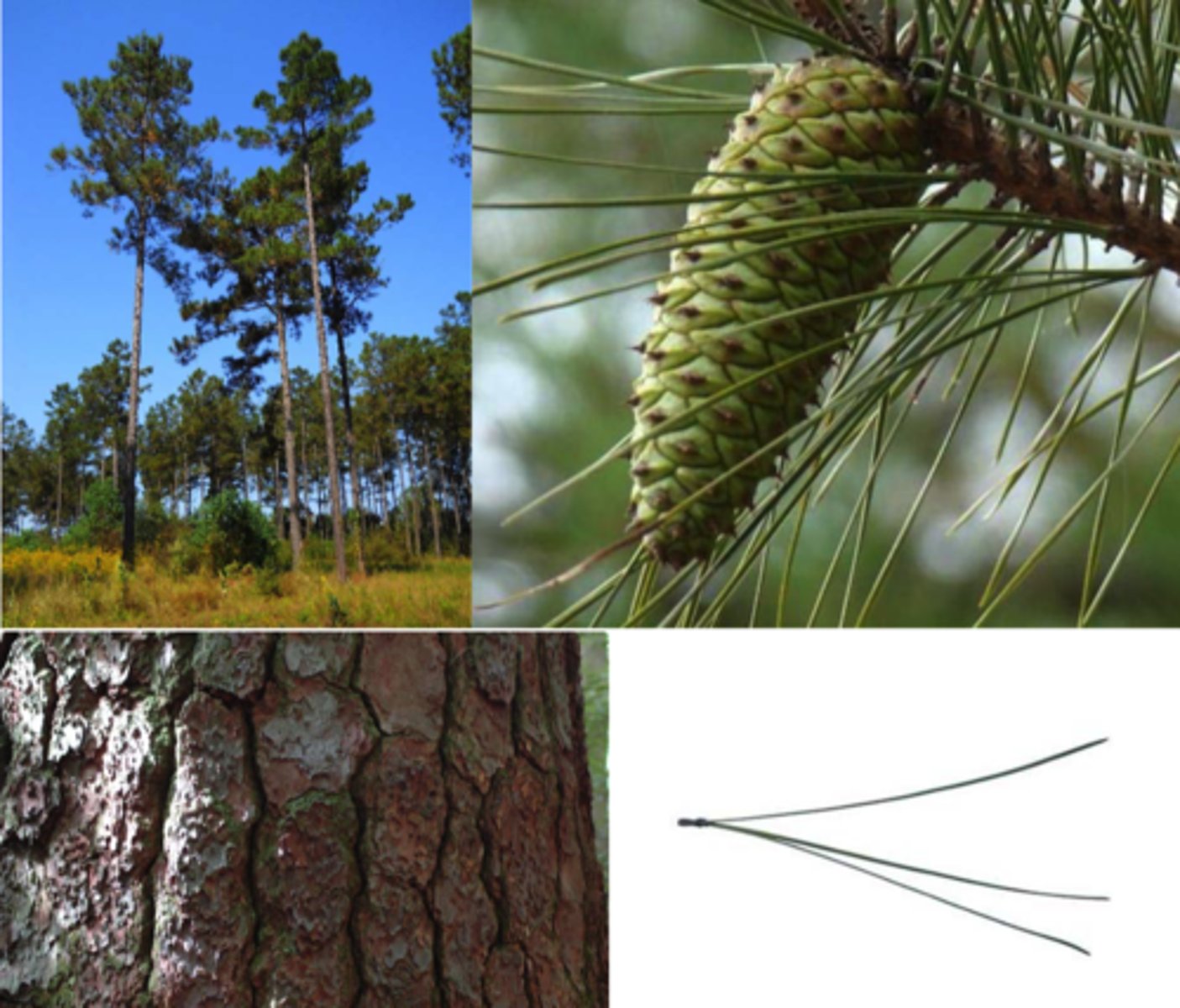
red maple (Acer rubrum)
3 lobed opposite simple leaves with serrated margins, green above and light-nearly white below
double samara with wings, light brown-reddish
bark begins light gray and smooth, becomes darker and forms scaly plates with age
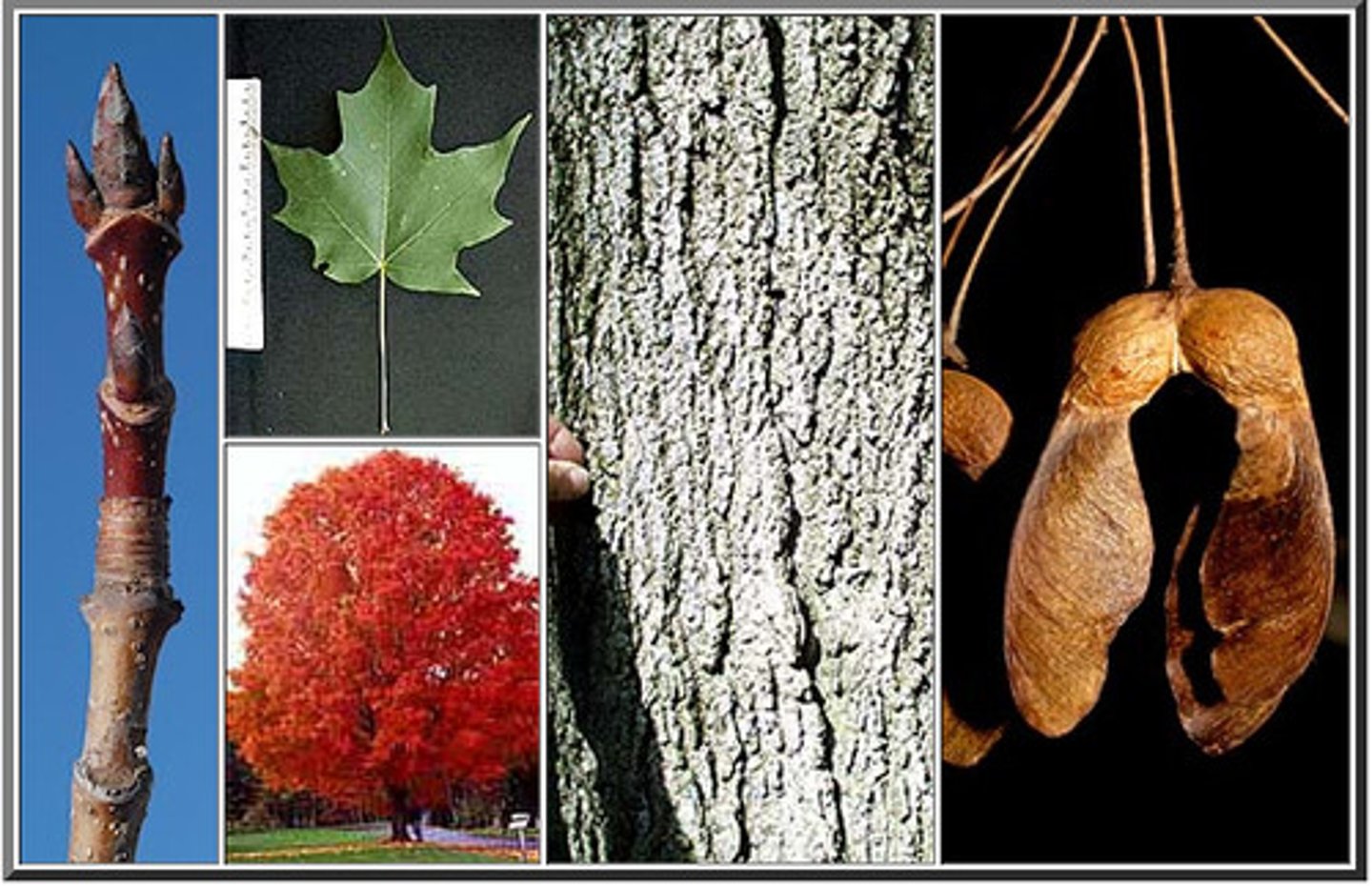
longleaf pine (Pinus palustris)
8-18 inch long fascicles in groups of 3, dense round tufts at the end of branches
cones 6-10 inches
bark scaly and thick with flat plates
silvery buds
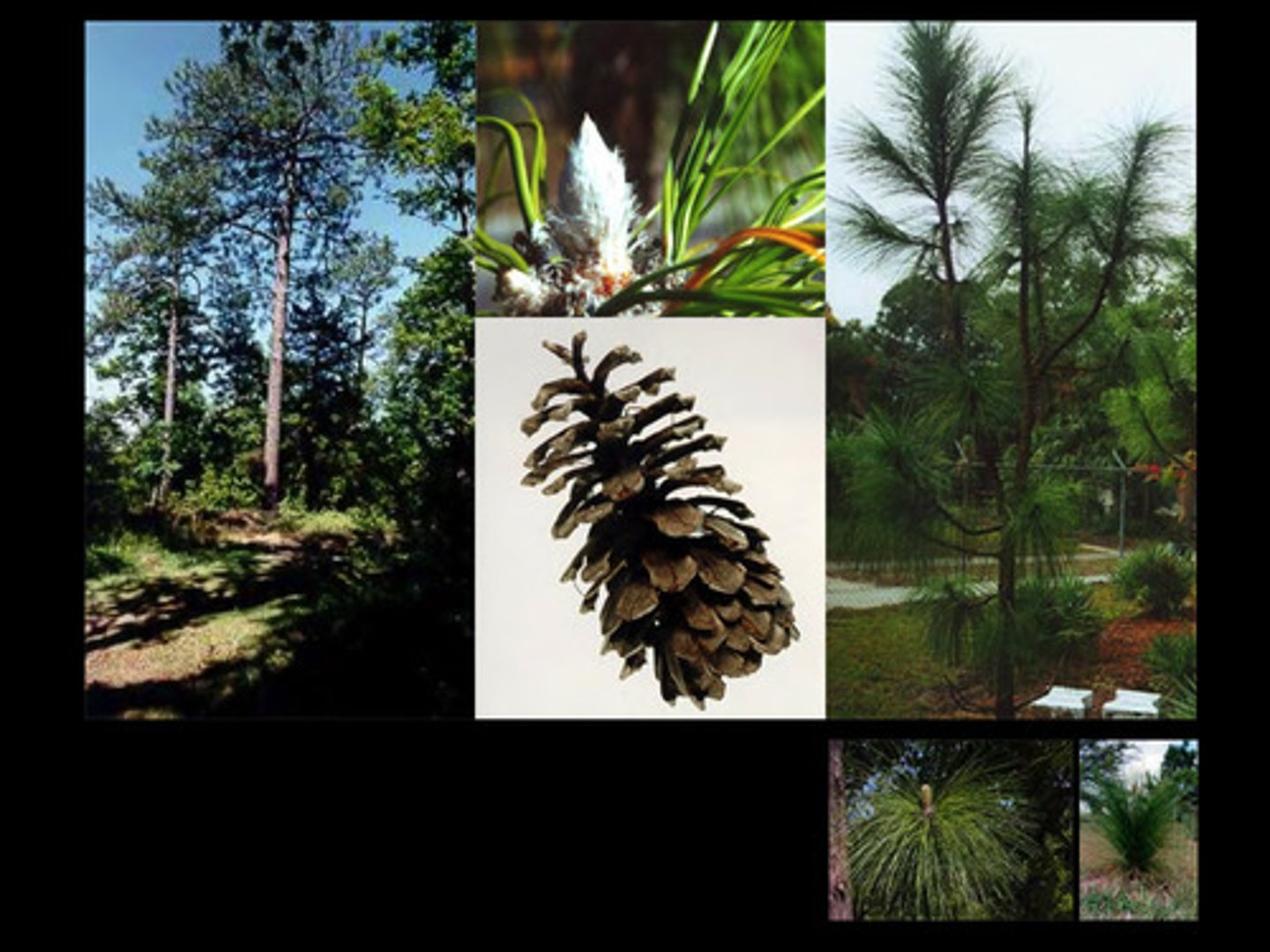
white ash (Fraxinus americana)
leaves opposite, compound with 7 serrate to entire leaflets, 8-12 inches long
purple to light green reproductive structures
one-winged samara
ashy gray to brown bark interlaced with corky ridges that form diamonds
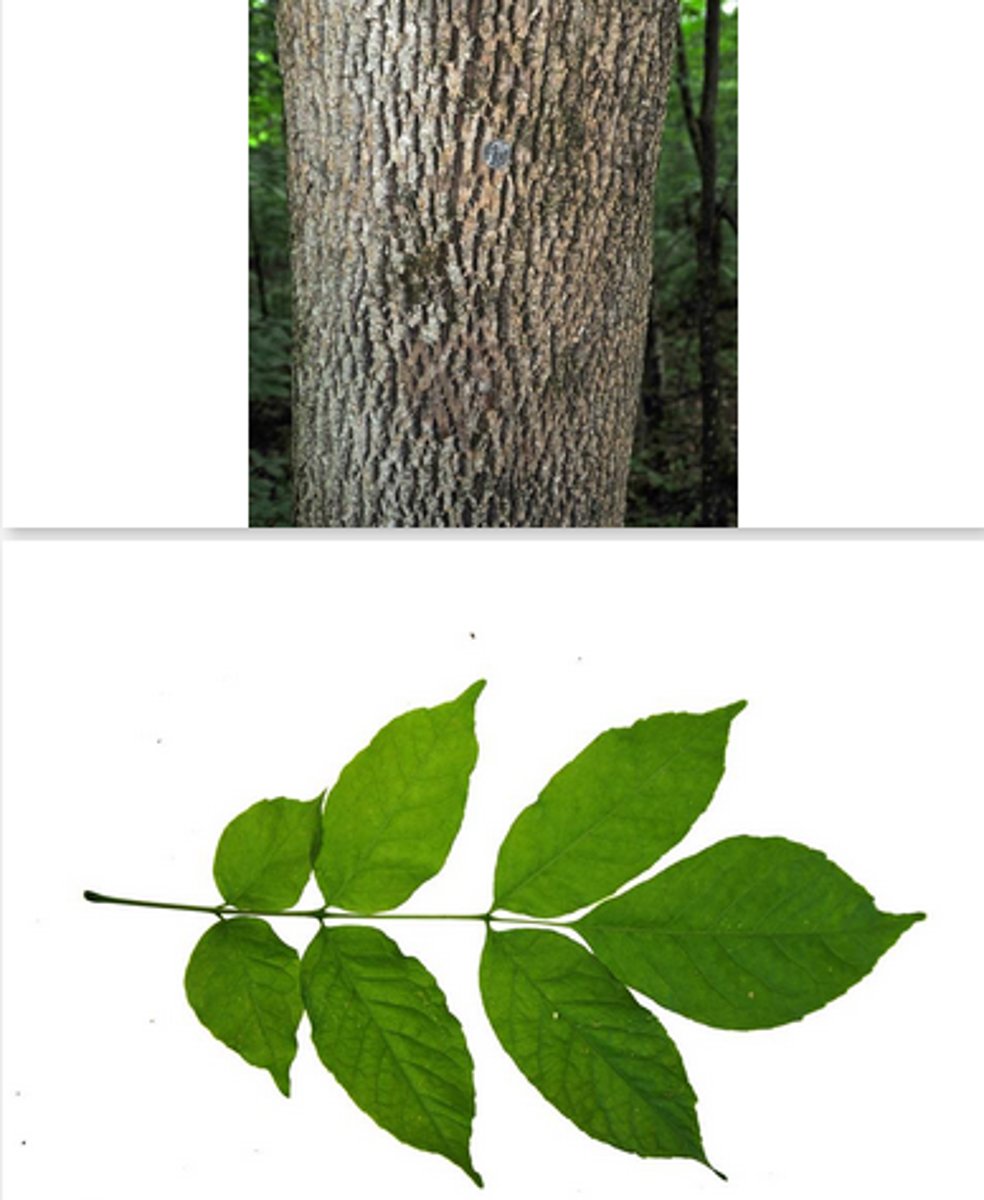
Boxelder (Acer negundo)
opposite pinnately compound leaves with 3-5 leaflets resembling poison ivy or classic maple leaf
drooping raceme
paired samara
thin gray bark with interlacing ridges
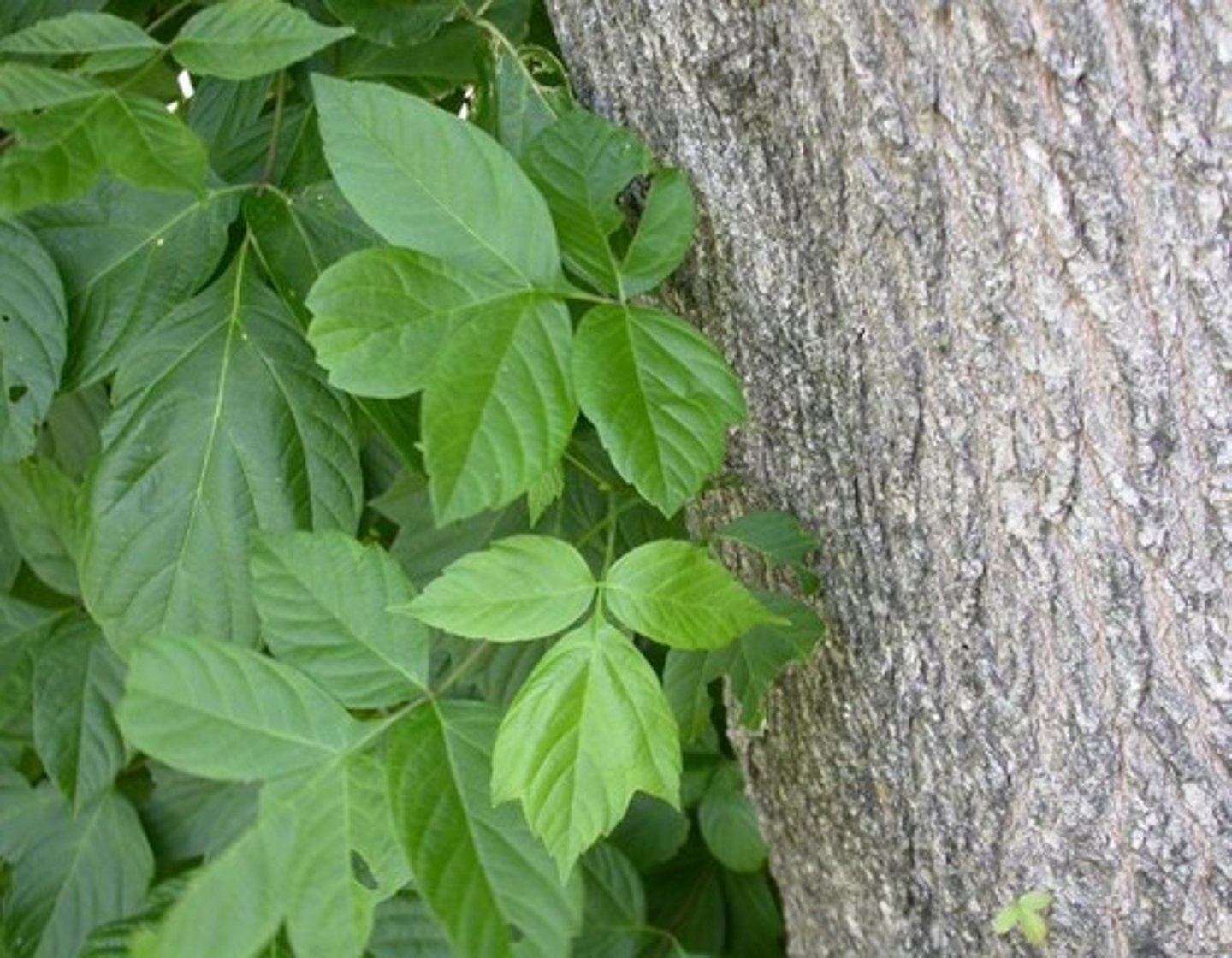
flowering dogwood (Cornus florida)
branches opposite creating candelabra appearance
leaves opposite, simple, oval with veins curving toward leaf tip
young bark smooth but becomes scaly
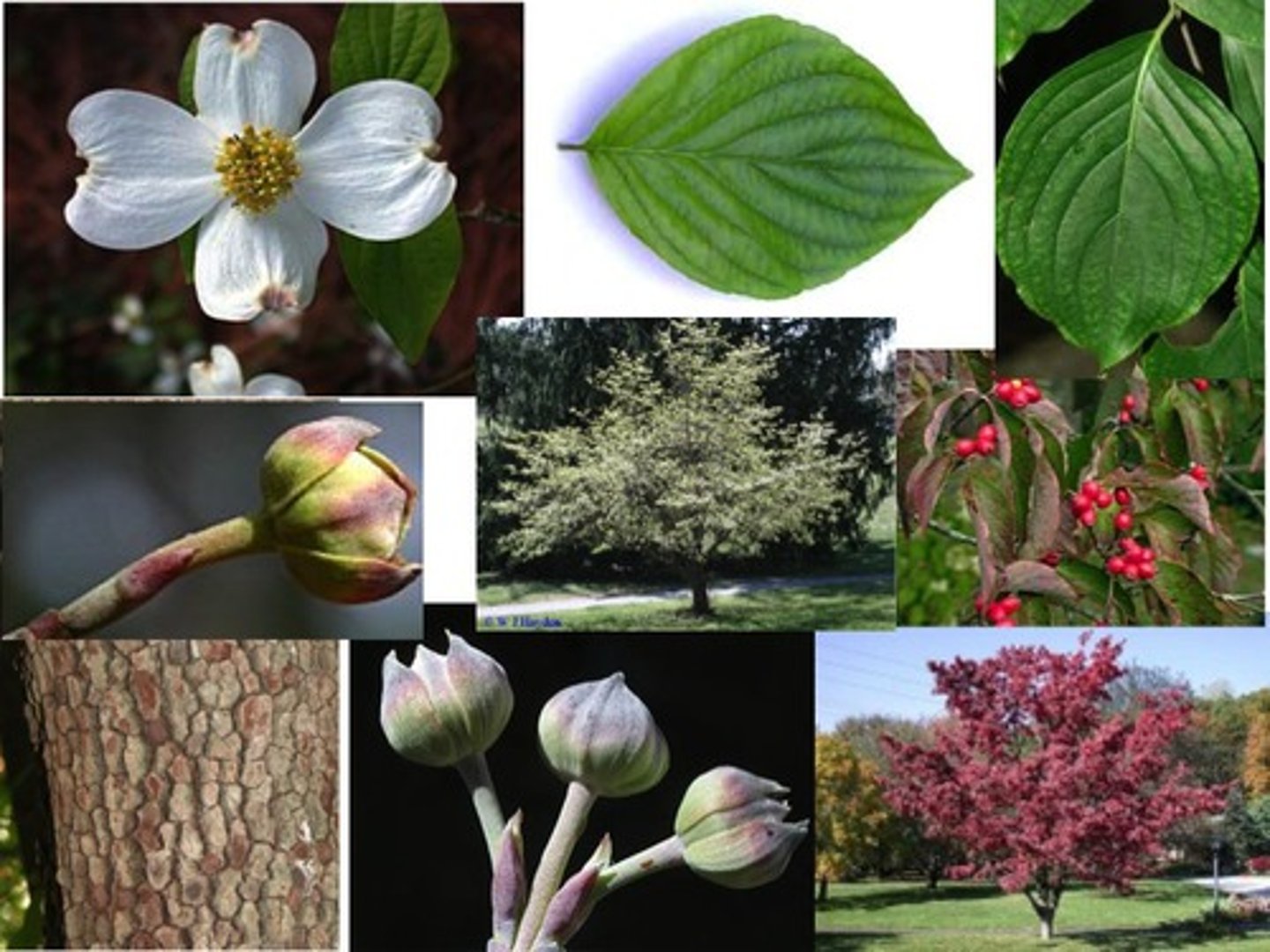
Florida maple (Acer floridanum), southern sugar maple
leaves opposite and simple, entire margins, 3-5 lobed
winged double samara spreads to create a right angle, green
bark light gray curling ridges that become plated as tree matures
typically understory
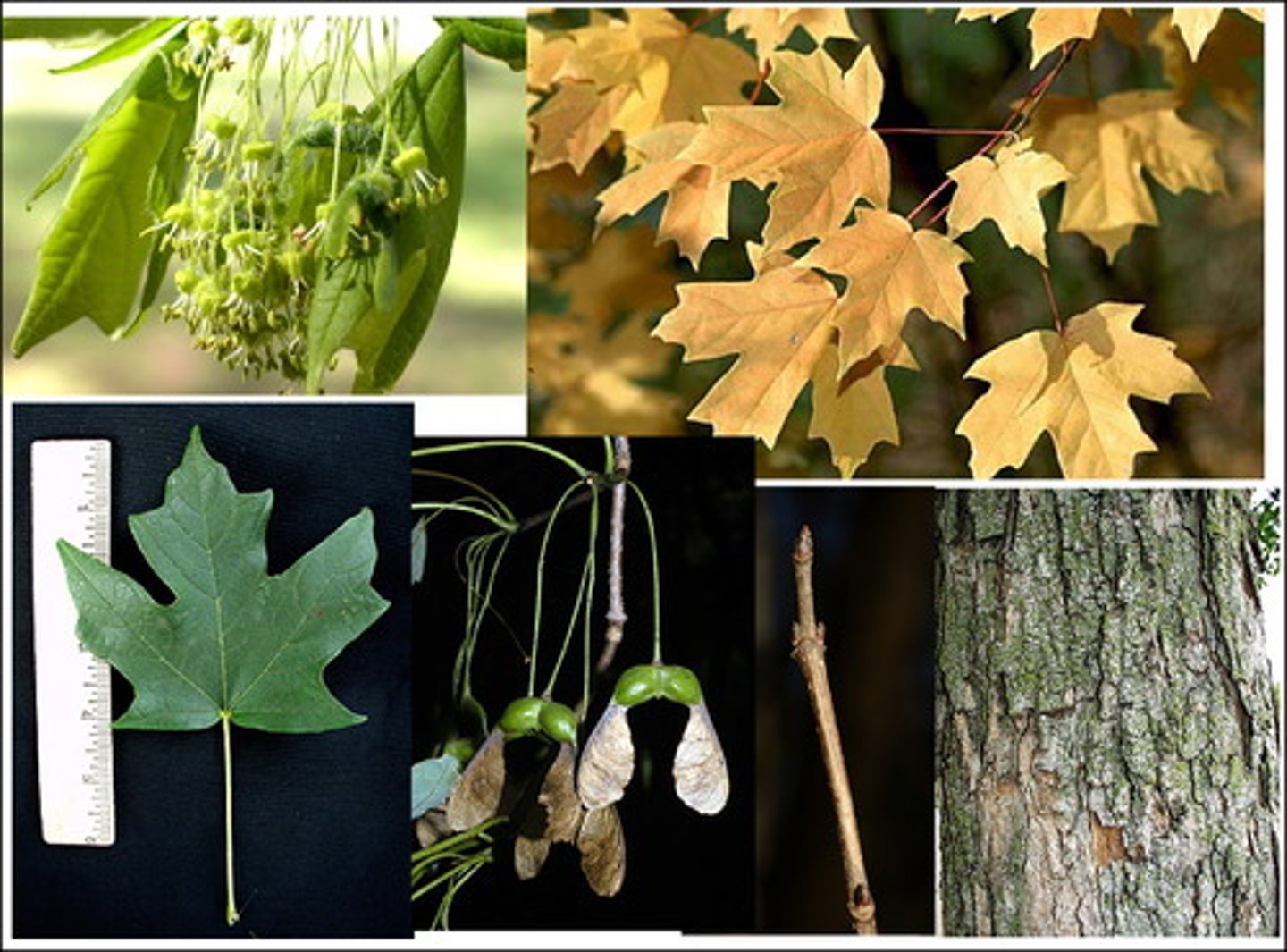
Pignut hickory (Carya glabra)
leaves alternate, pinnately compound, 8-12 inches long, 5 leaflets lanceolate and serrate
long, smooth rachis
drooping catkins, 3 on a stalk, 3-7 inches long
fruit nut enclosed in a thin husk, dries and splits along seams when ripe
light gray bark smooth then develops scaly ridges as it matures
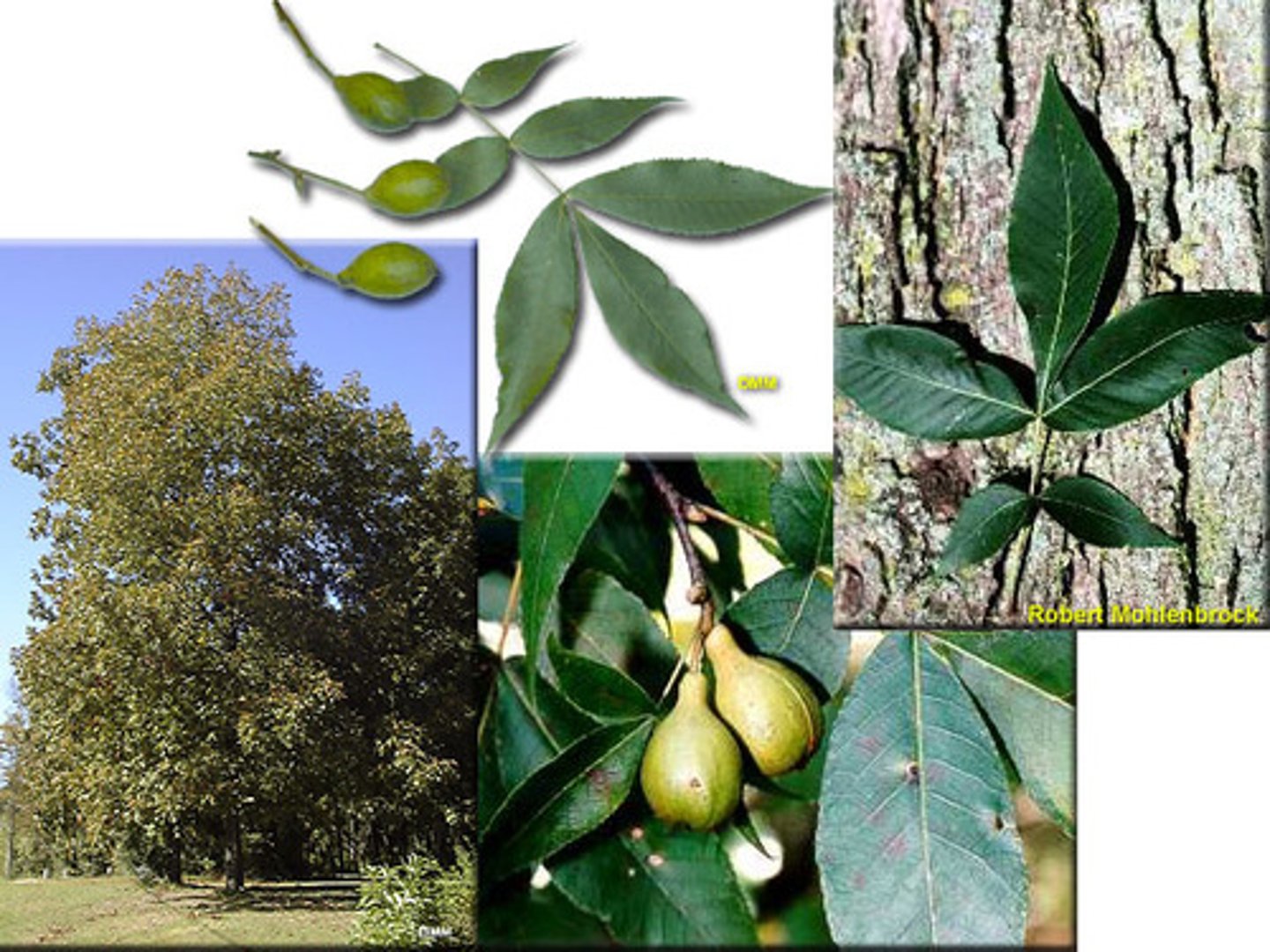
Mockernut hickory (Carya tomentosa)
alternate, pinnately compound leaves 9-14 inches long, 7 serrate lanceolate leaflets
rachis hairy and stout
catkins
nut with 4-ribbed husk that splits cleanly from middle to base
gray smooth bark develops into interlaced round-topped ridges
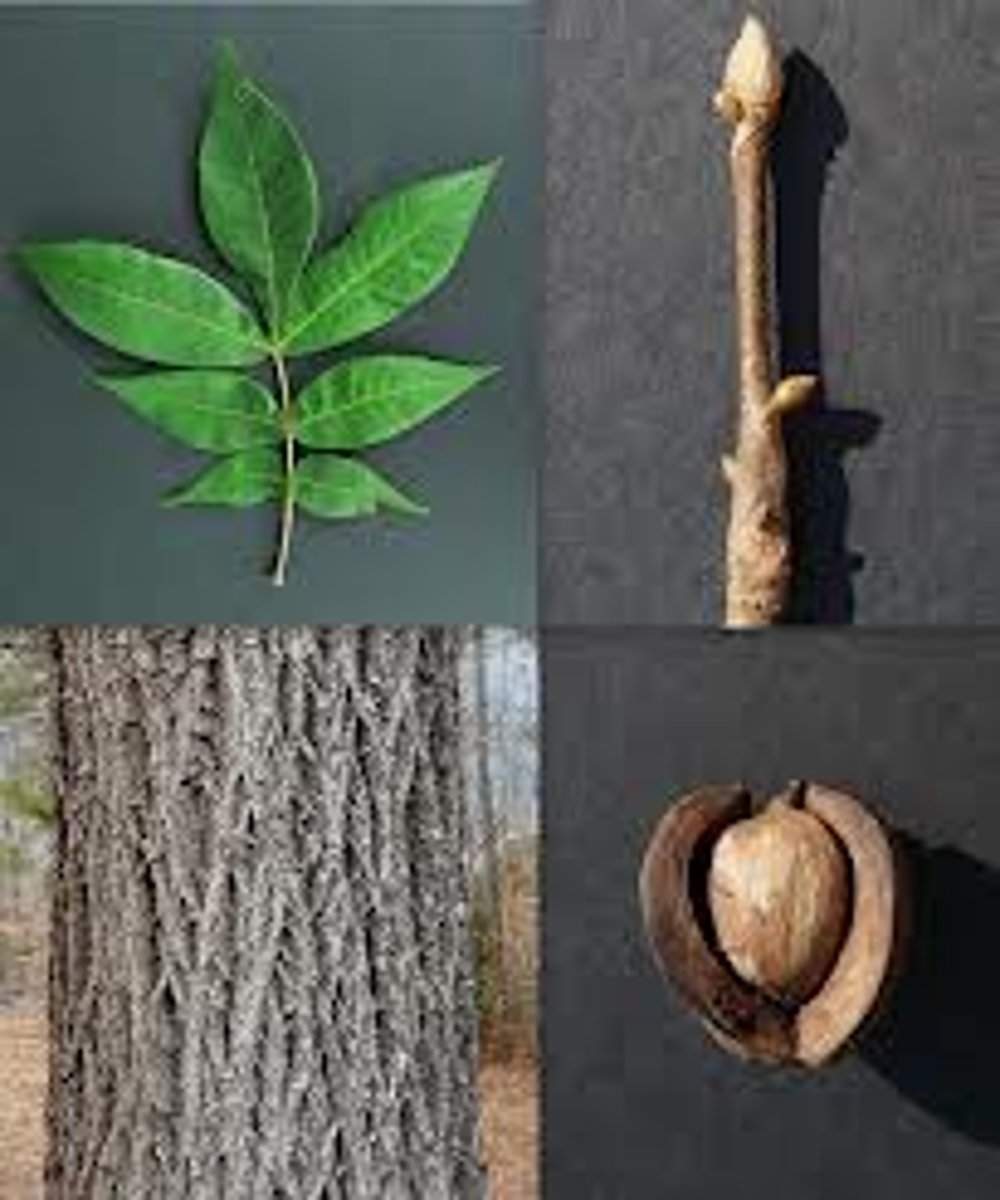
Eastern redbud (Cercis canadensis)
heart shaped leaves, alternate, 3-5 inches long
petioles swollen on both ends
flat, dry, brown legume
Bark ridged and furrowed to scaly, maroon/orange patches in cracks
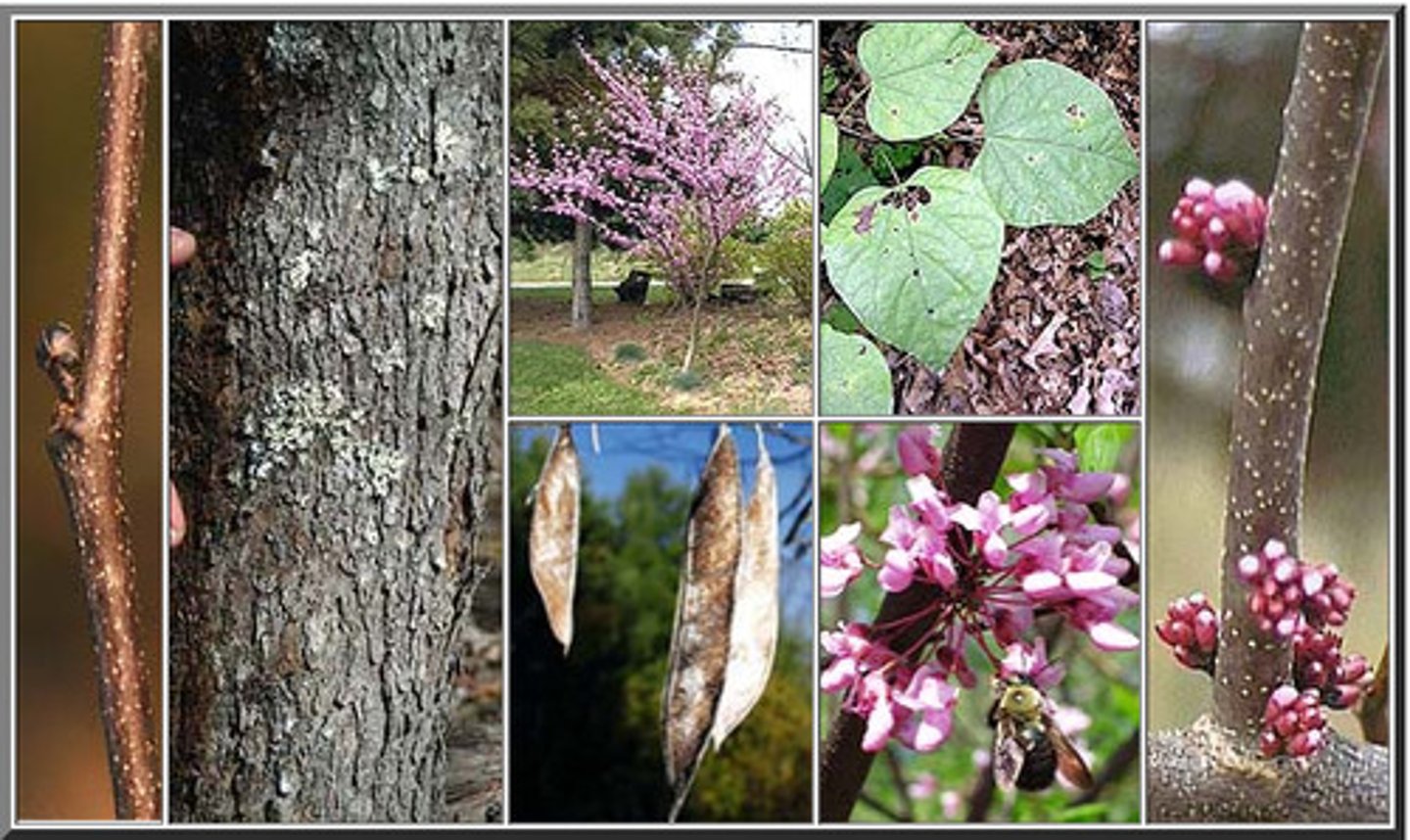
Sweetgum (Liquidambar styraciflua)
star leaves alternate, 5-7 lobes
fruit a spiny brown cluster of capsules, spherical
furrowed bark corky
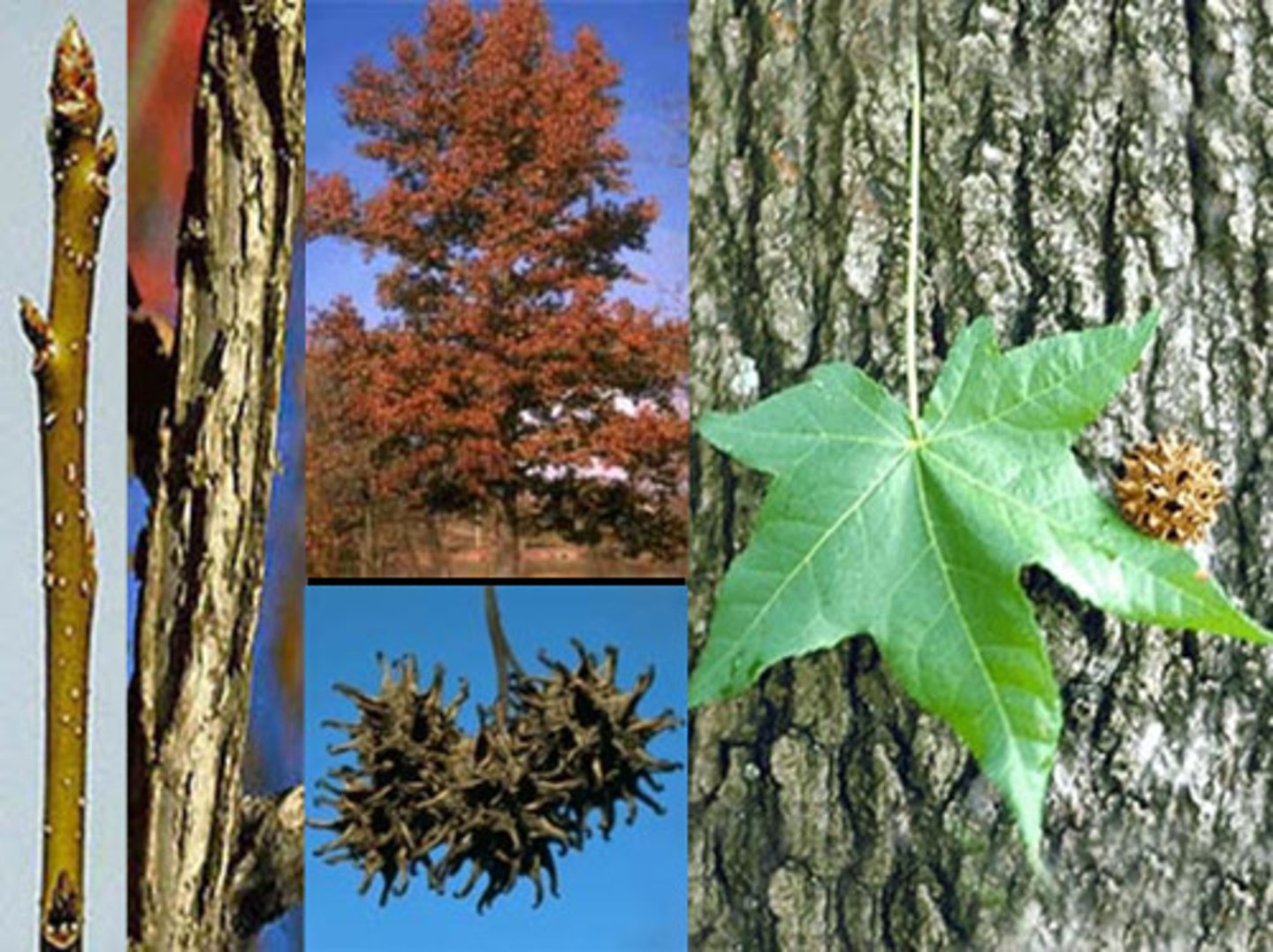
American beech (Fagus grandifolia)
leaves alternate, simple, elliptical, 3-6 inches
leaves light tan in fall
fruit irregularly triangular, shiny brown nut, spiny wooden husk
bark smooth, thin, gray
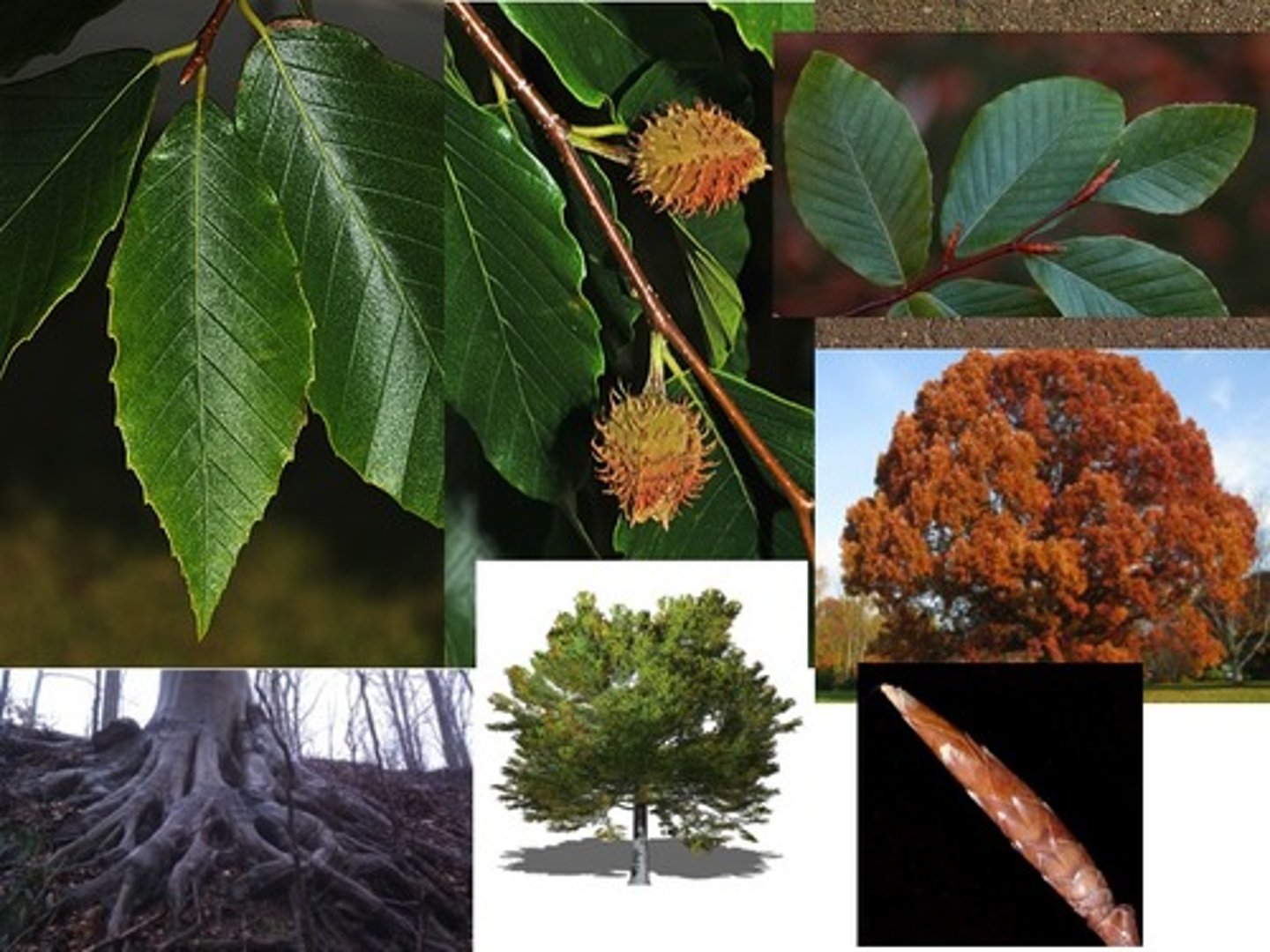
American hornbeam (Carpinus caroliniana)
trunk crooked and rigid, muscular appearance
simple alternate leaves waxy, pale underside, double serrate margins, 3-5 inches long elliptical
yellow-green catkins, fuzzy catkins
fruit small ribbed nutlet, carried on folded leafy bract resembling maple leaf, bracts clustered on long hanging stalk 2-4 inches long
bark thin, smooth, gray-blue-gray
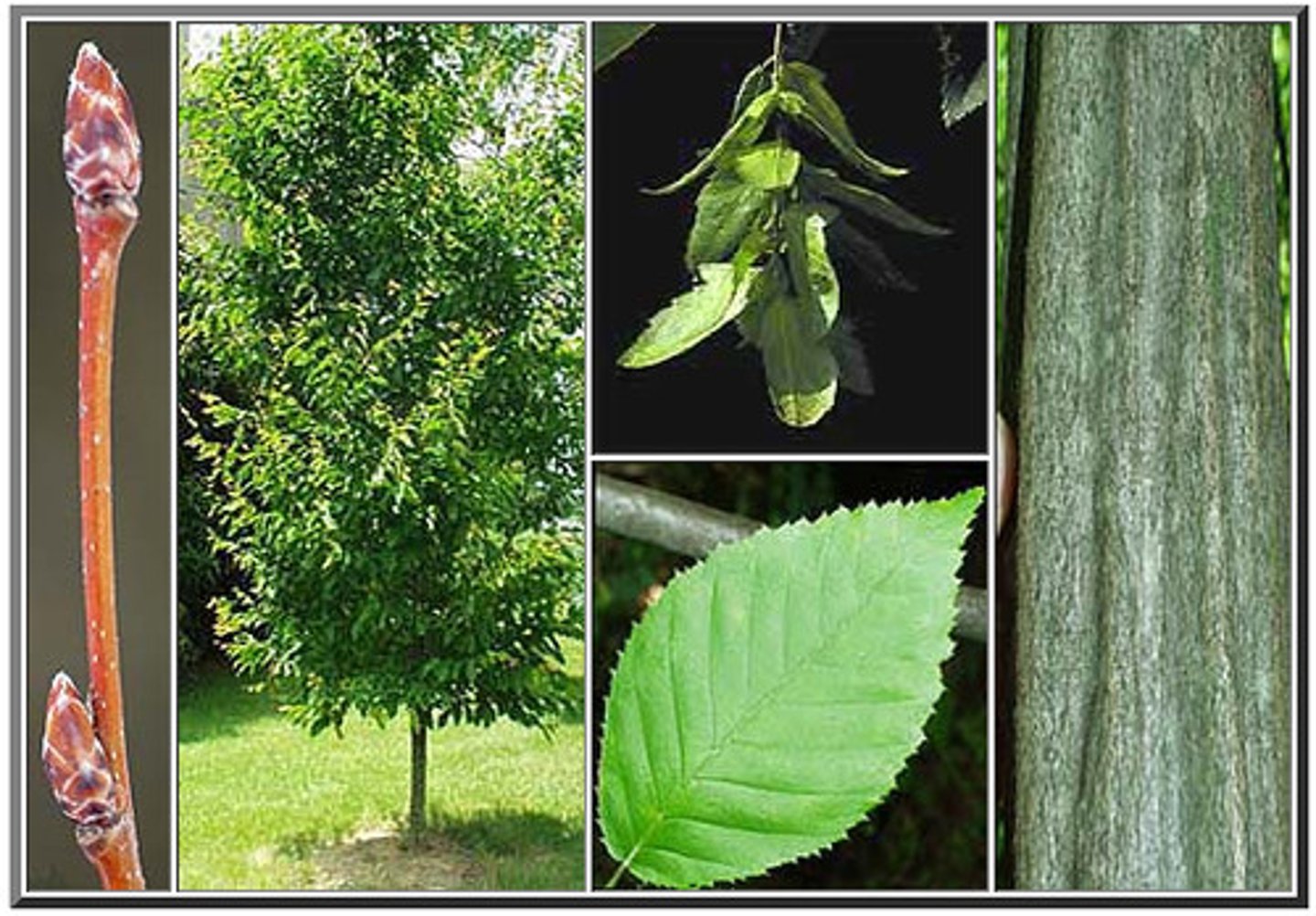
tulip poplar (Liriodendron tulipifera) yellow poplar
four lobed leaves, tulip appearance
oblong, cone-like aggregate of samaras
bark light gray, flat topped ridges with white furrows in diamond shaped patterns
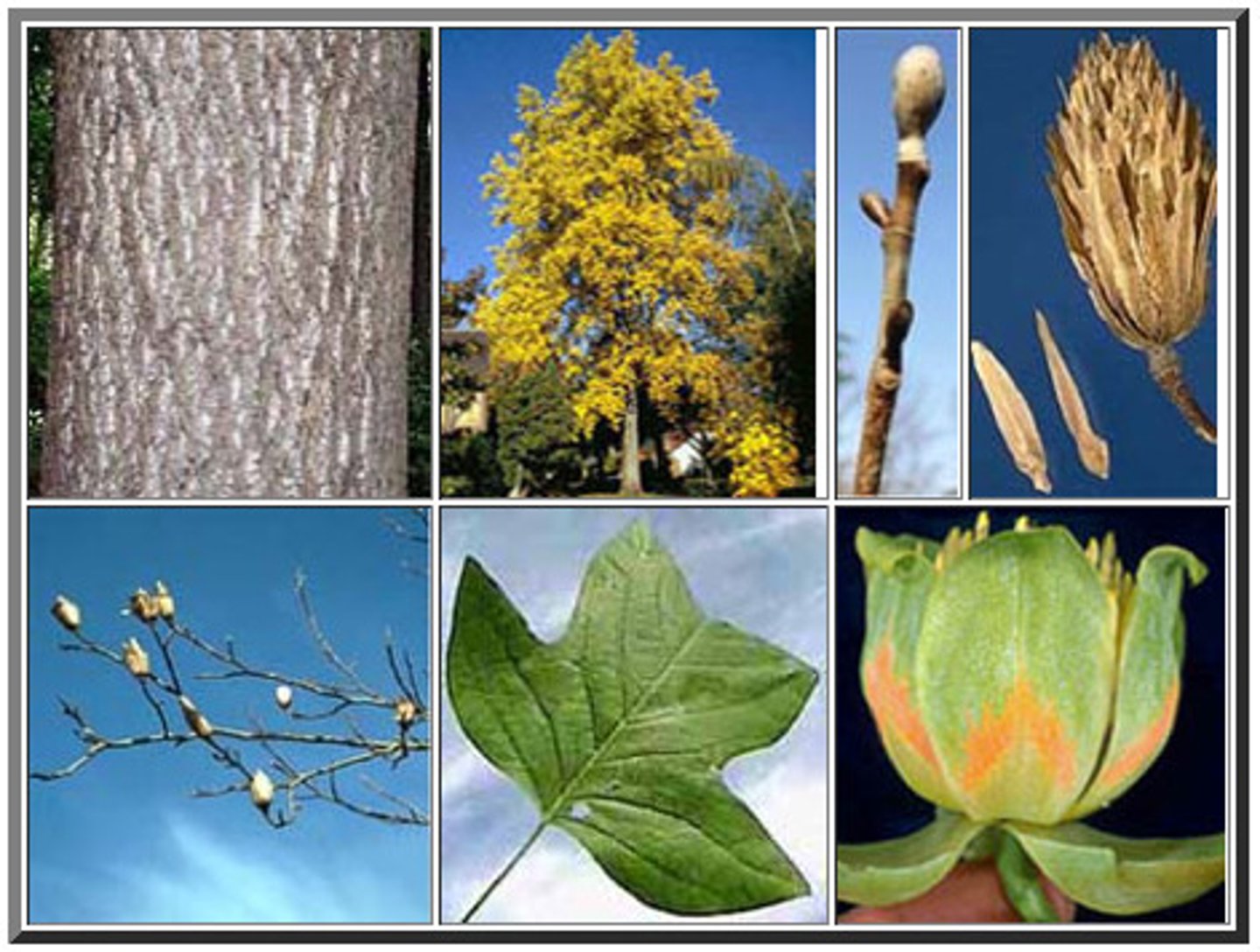
Southern red oak (Quercus falcata)
leaves with 3-7 bristle tipped lobes, alternate, 5-9 inches, obovate in outline
leaves shiny green above, paler and fuzzy below
1/2 inch long orange-brown acorns, cap covering less than 1/3 of the nut
dark bark, thick broad scaly ridges, slightly yellow inner bark
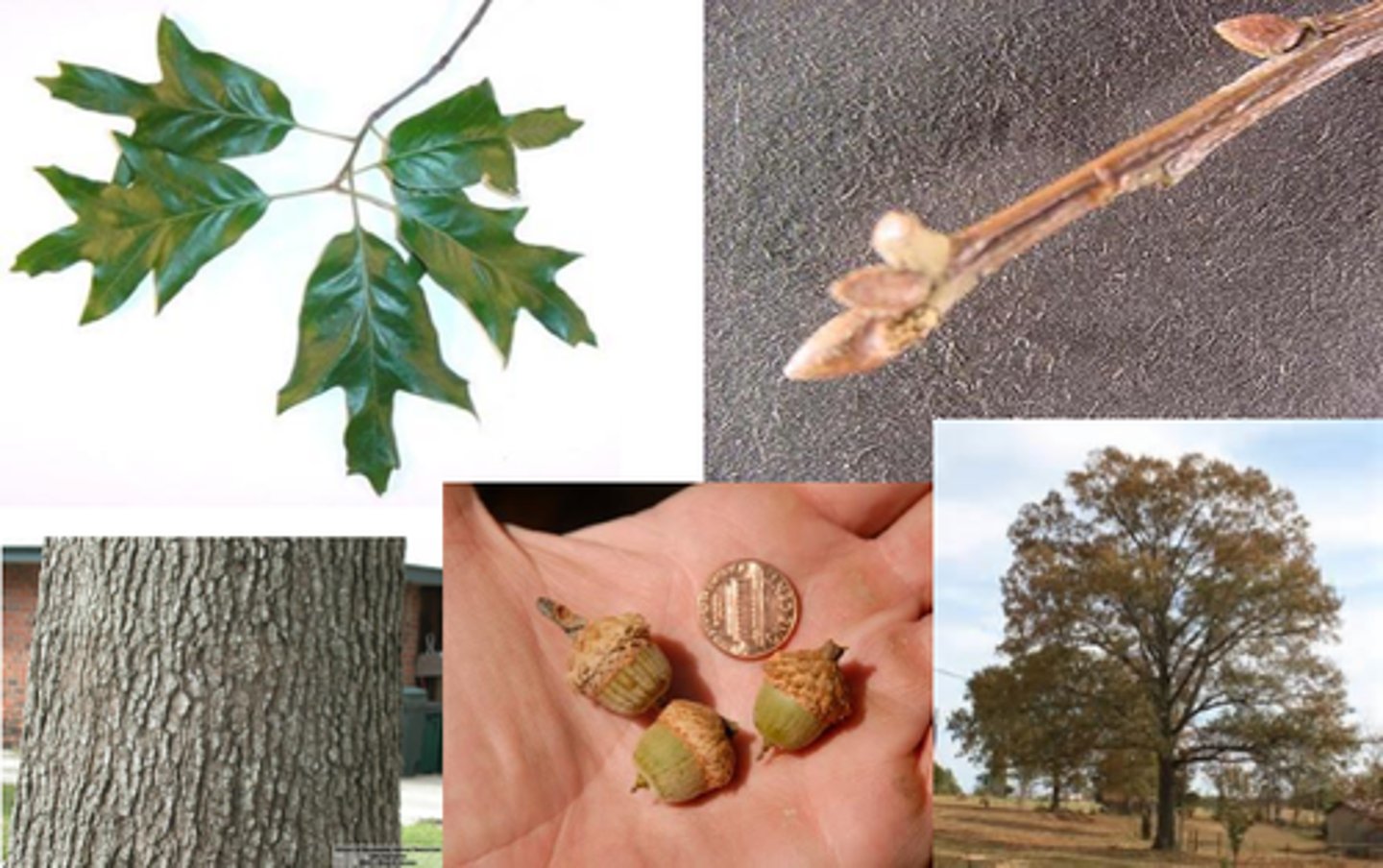
Cherrybark oak (Quercus pagoda)
leaves simple, alternate, 5-11 lobes bristle tipped, lobes at right angle to midrib, leaf 3-12 inches long, hair on underside and petiole
acorn cap covers 1/3-1/2 of the nut
bark dark, scaly, rough, resembling black cherry bark
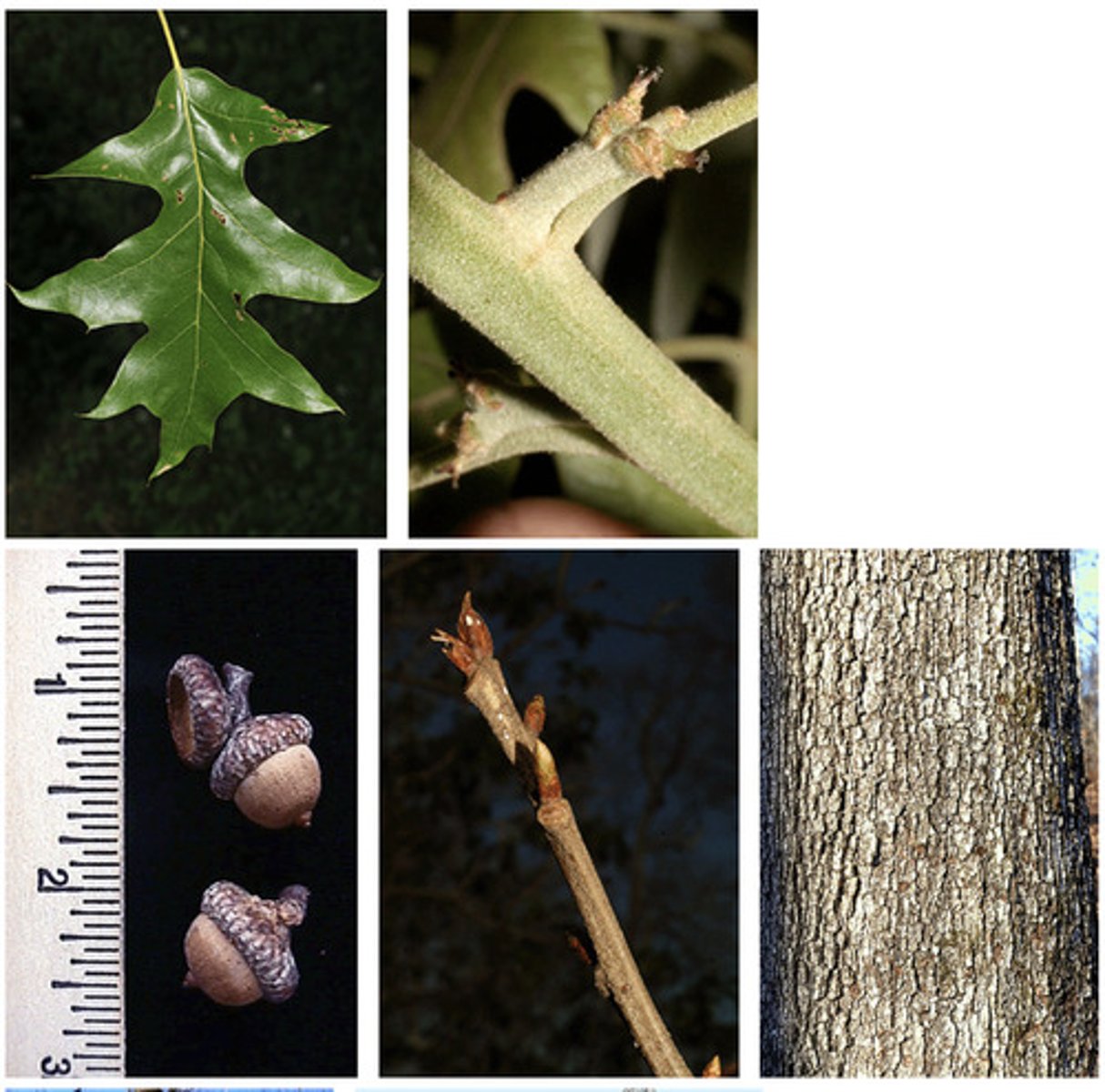
Northern red oak (Quercus rubra)
Leaves alternate, 5-8 inches long, oblong with 7-11 bristle tipped lobes, generally uniform in shape, dull green to blue-green
acorns with cap covering 1/4 or less, resembling a beret
bark nearly black, wide flat-topped ridges, red inner bark
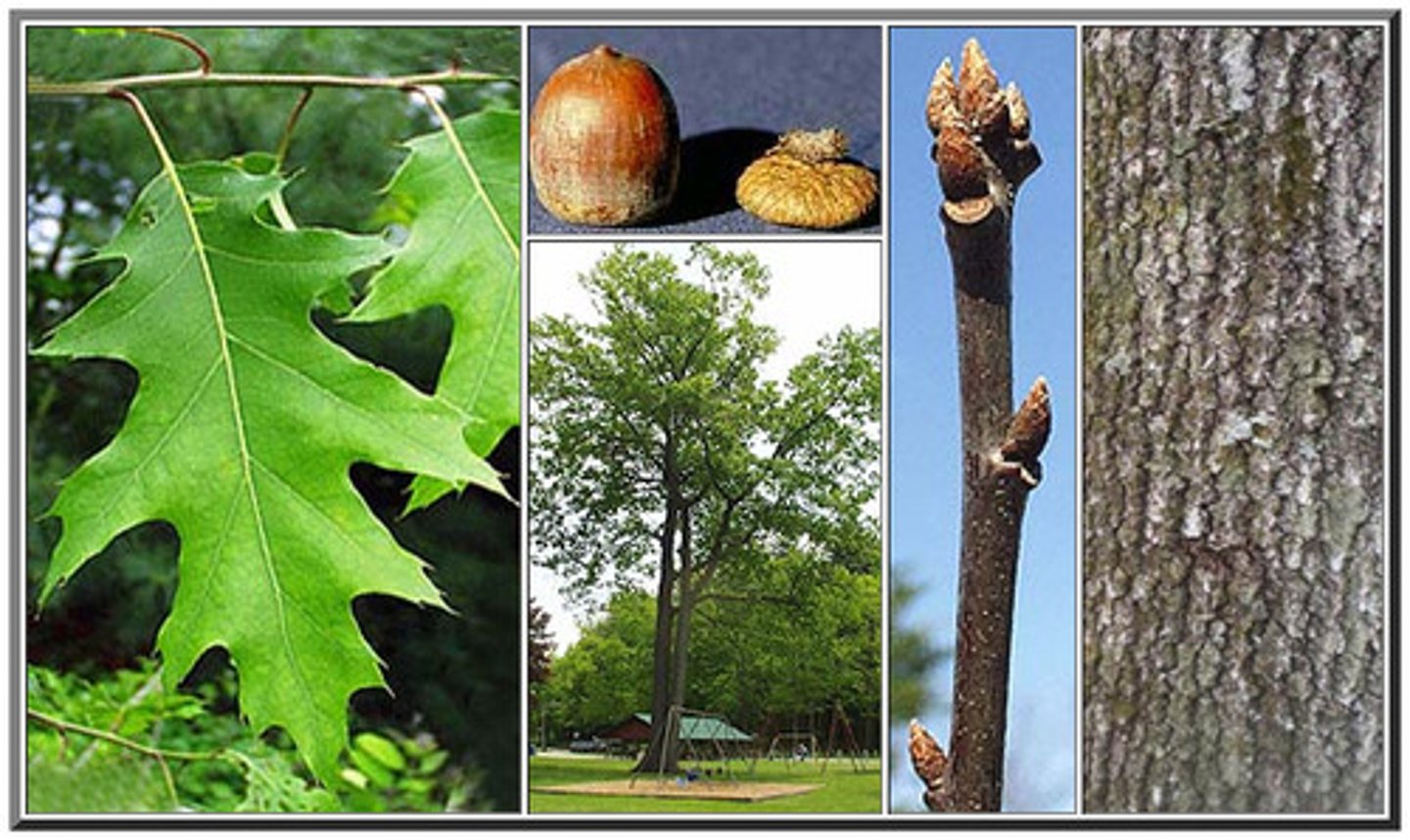
White oak (Quercus alba)
Alternate leaves, oblong 4-7 inches long w/ 7-10 rounded, finger-like lobes, whitish underside
oblong acorn w/ wart-like cap covering 1/4 of the nut
whitish gray bark, small stems scaly, large stems loosely plated, older trees with smooth patches
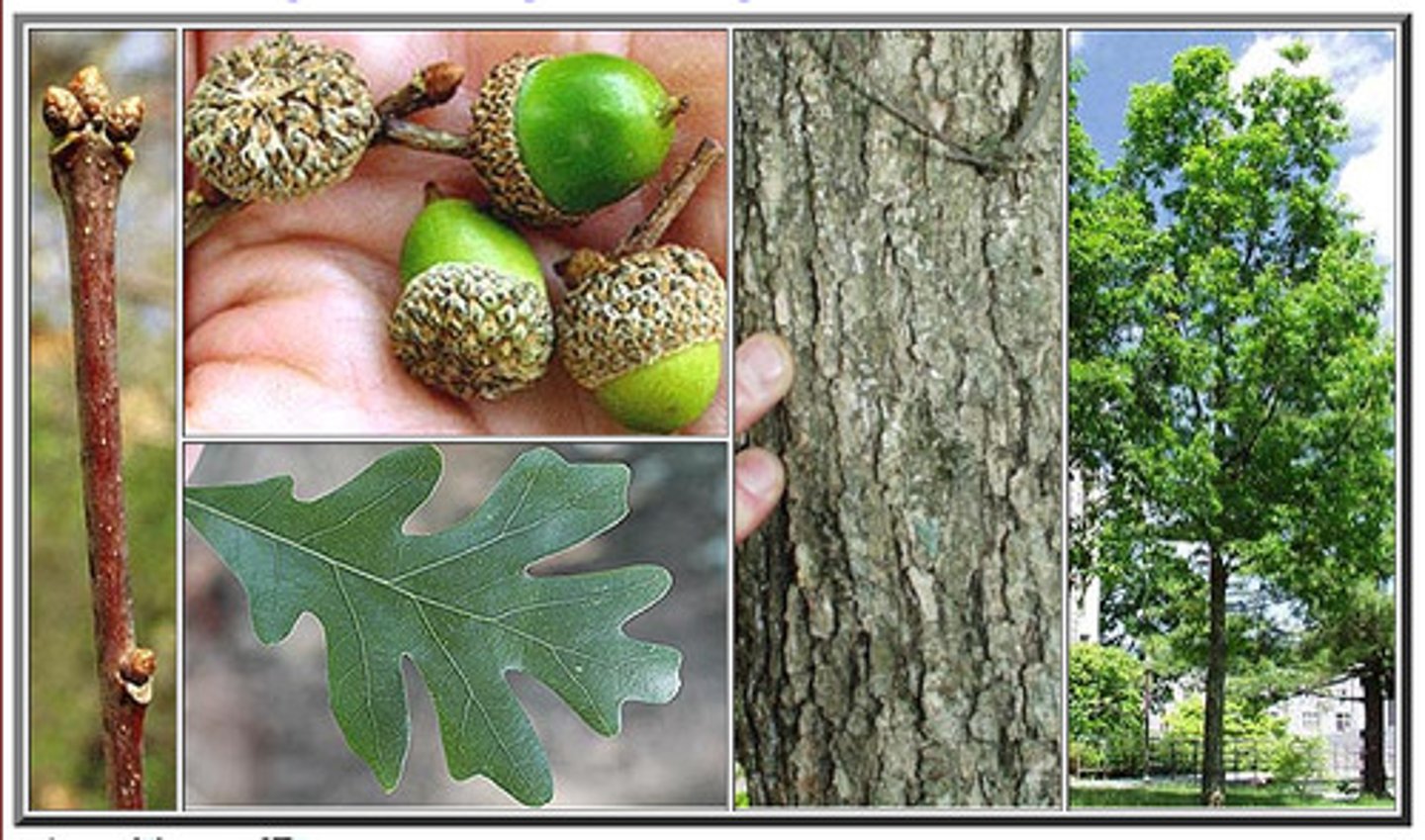
Chestnut oak (Quercus montana)
simple alternate leaves, crenate margin, obovate to elliptical, 4-8 inches long
ovoid acorn, cap with gray scales with red tips, 1/3-1/2 nut
bark thick gray-brown to black, rounded scaly ridges resembling alligator back
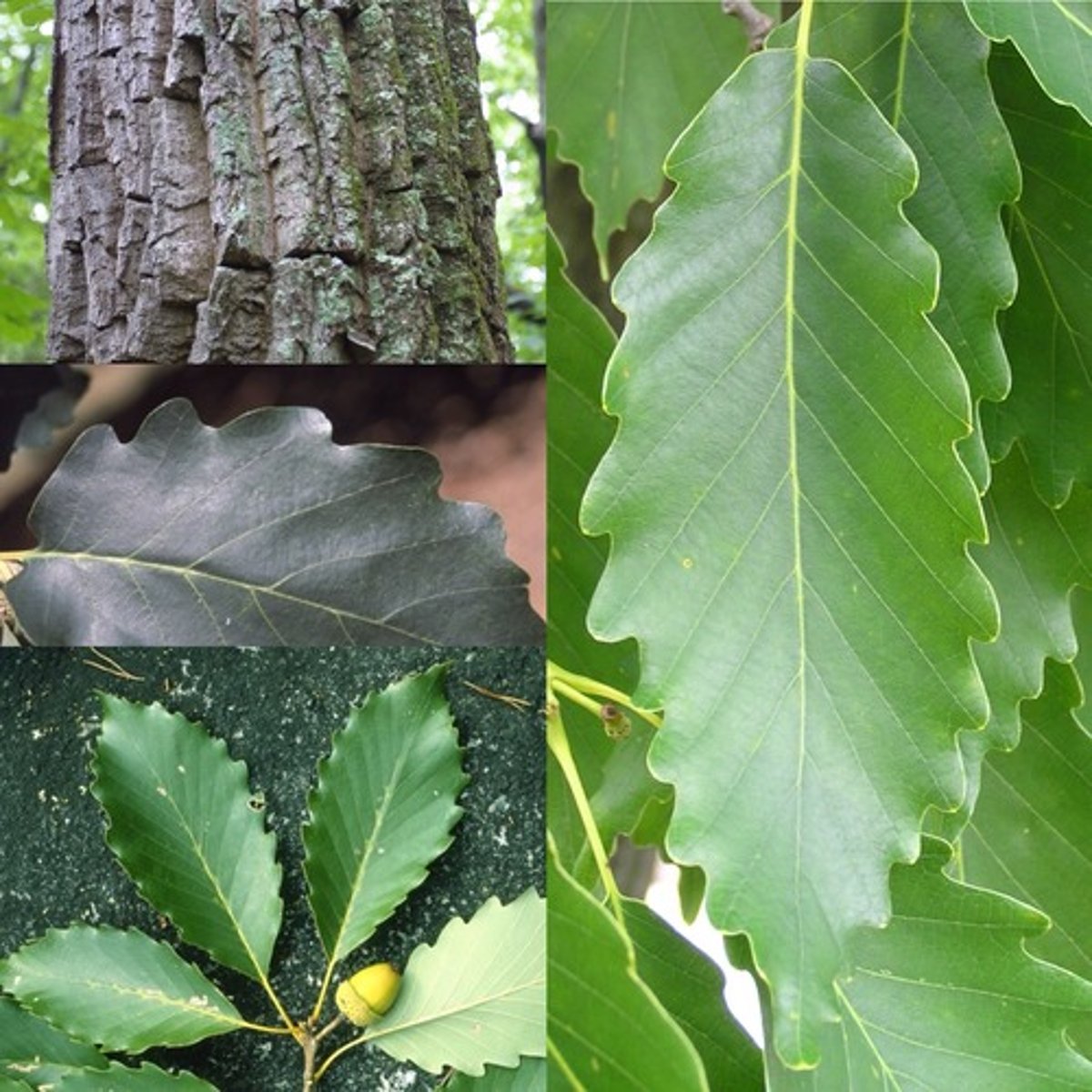
Swamp chestnut oak (Quercus michauxii)
simple alternate leaves, crenate margin, obovate, 4-8 inches long, dark green shiny above pale and downy below
dark brown acorn with cap covering 1/2
ashy gray bark, scaly furrows
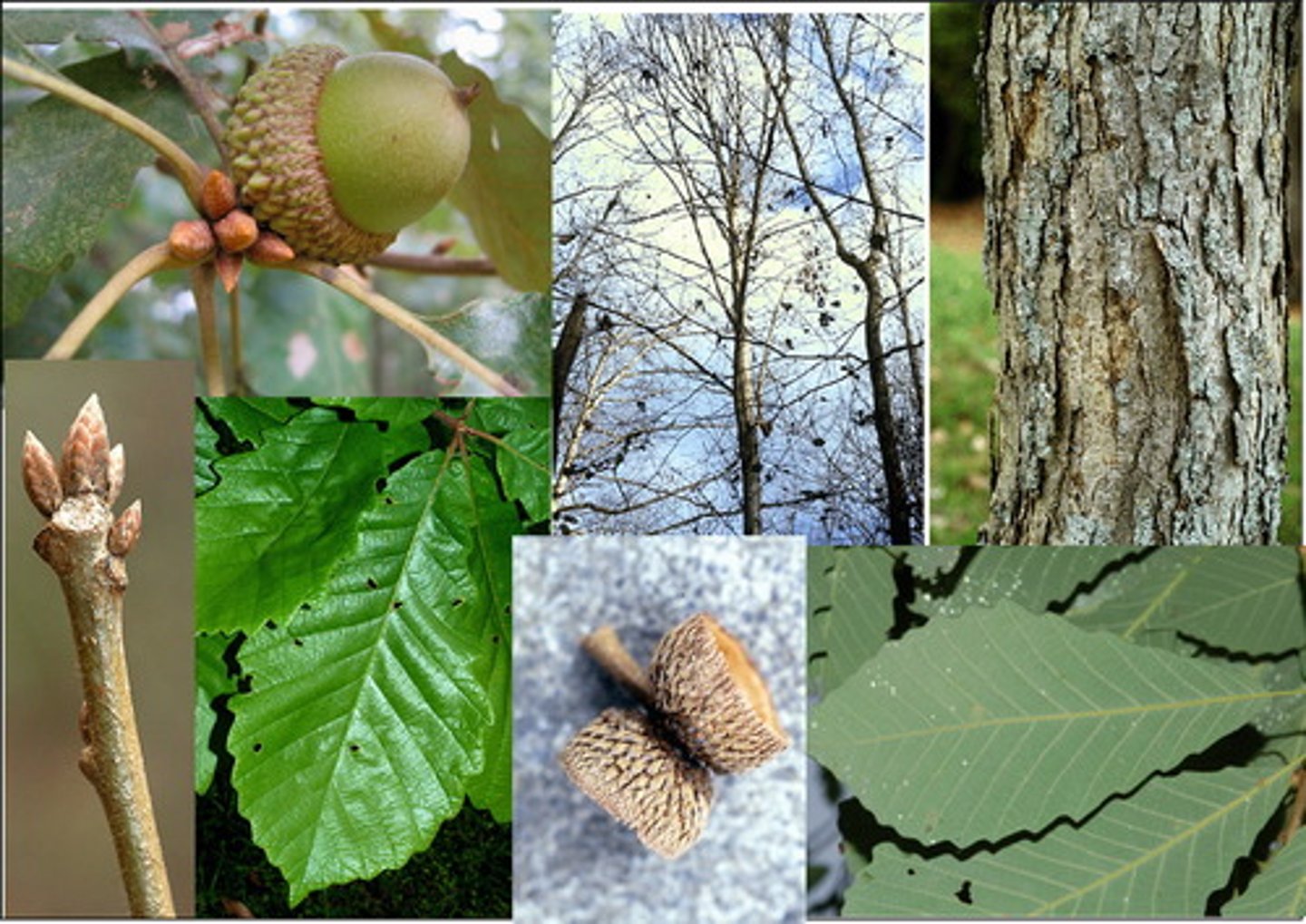
Black gum (Nyssa sylvatica) black tupelo
alternate leaves 2-6 inches, obovate
dark scaly bark
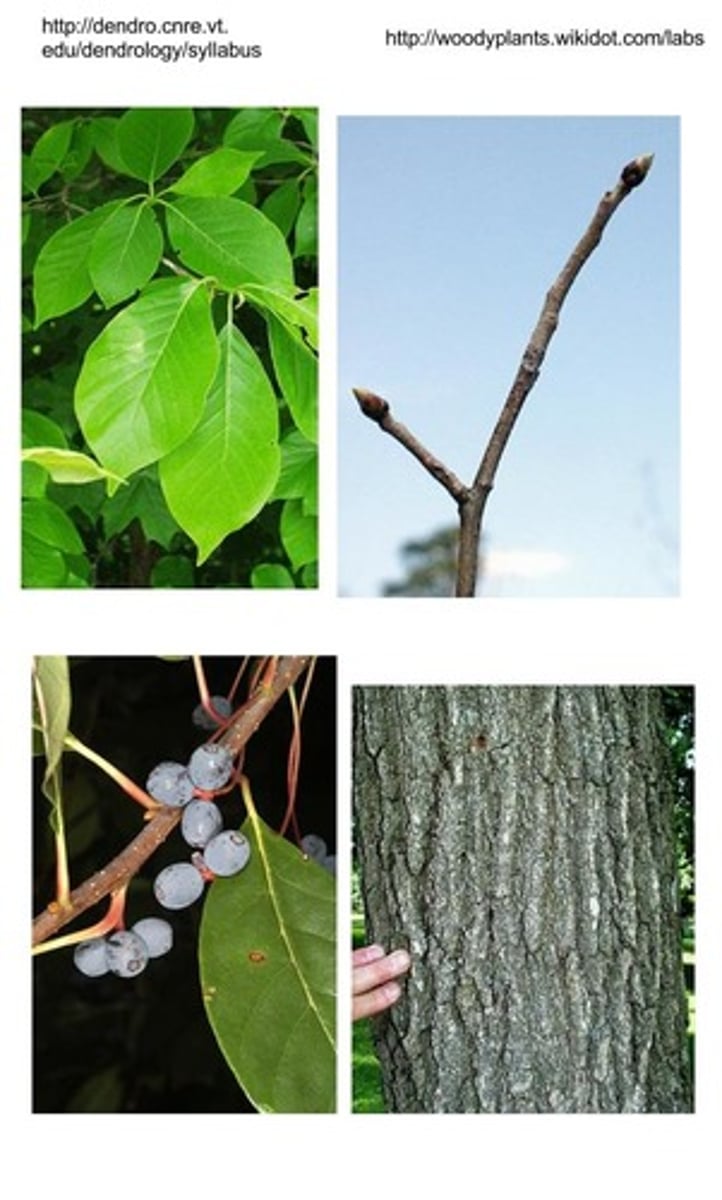
Black cherry (Prunus serotina)
elliptical leaf 2-6 inches long, alternate, finely serrate margin with glandular teeth
glossy dark green leaves with paler underside and rusty colored hairs along midvein
dark bark with scaly plates that curl outward
bitter almond odor of bark/leaves
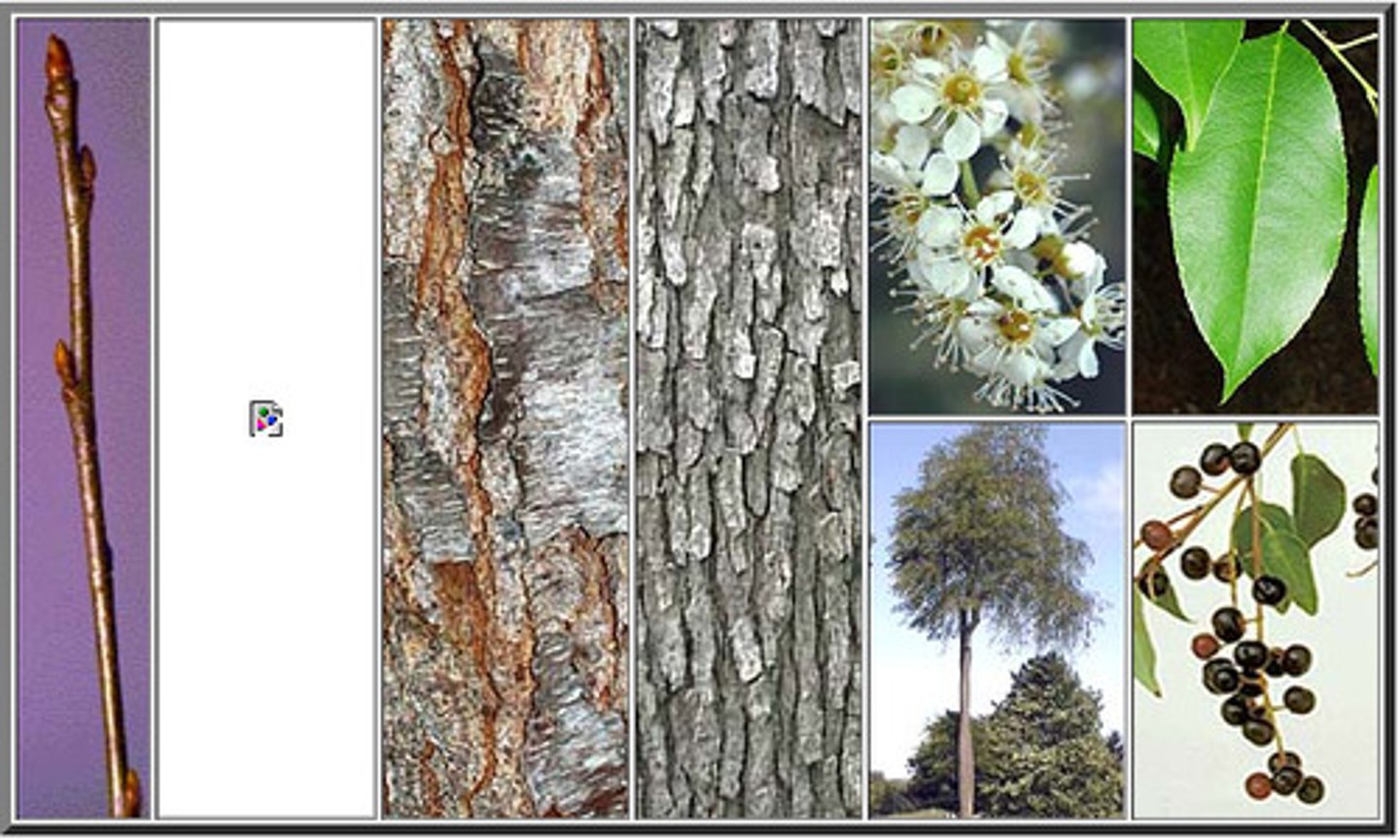
Carolina ash (Fraxinus caroliniana)
pinnately compound leaves opposite, 5-9 leaflets elliptical to lanceolate
light gray to orange-brown bark thin, scaly, irregularly ridged, becomes rough and furrowed with age
dioecious, small green-purple flowers
tan-purple samaras, single or occasionally three-winged
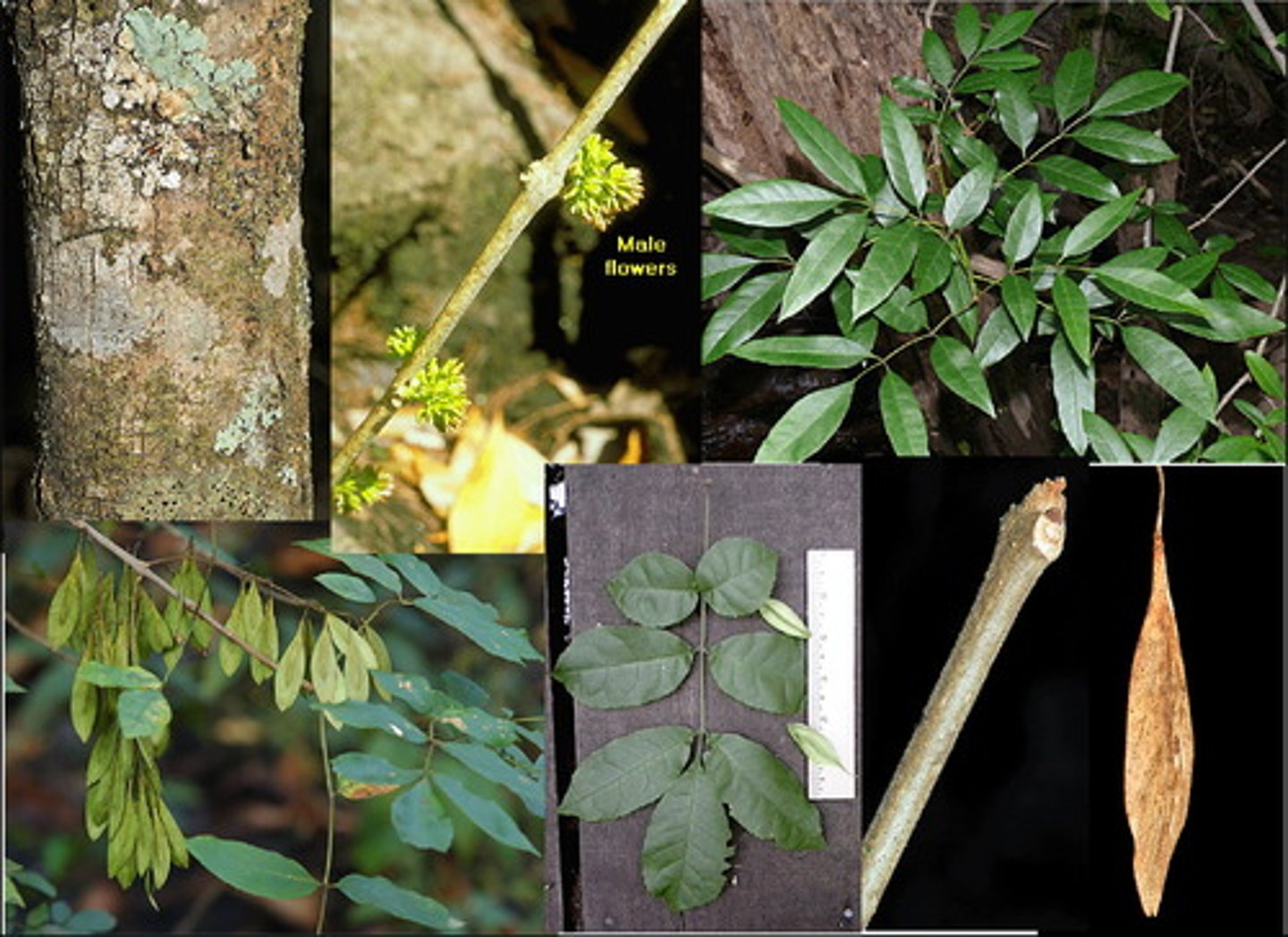
shortleaf pine (Pinus echinata)
2-5 inch long needles in clusters of 2, 1.5-2.5 inch cones
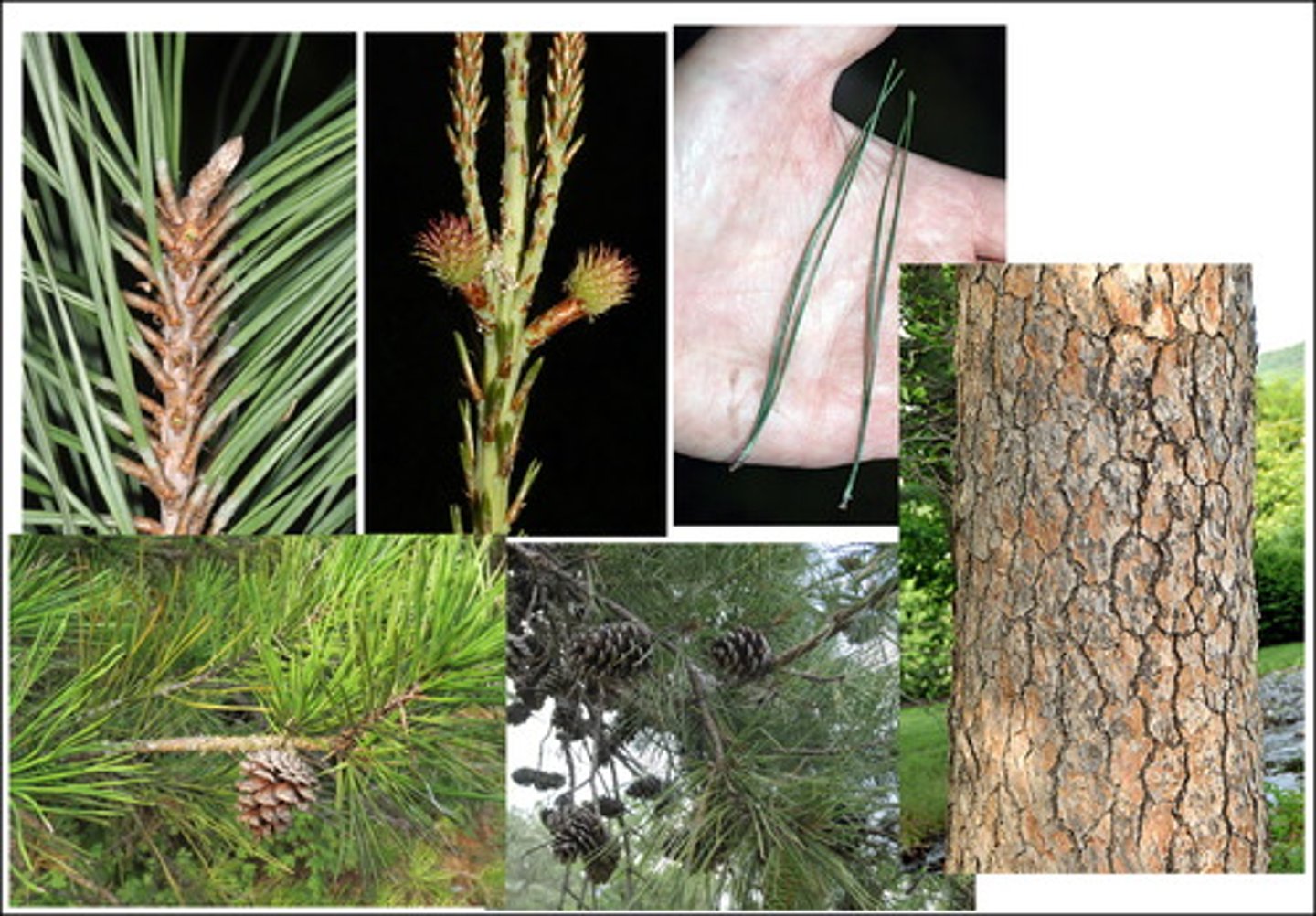
virginia pine (Pinus virginiana)
twisted, short needles 1.5-3 inches long, bundles of 2
spiky cones
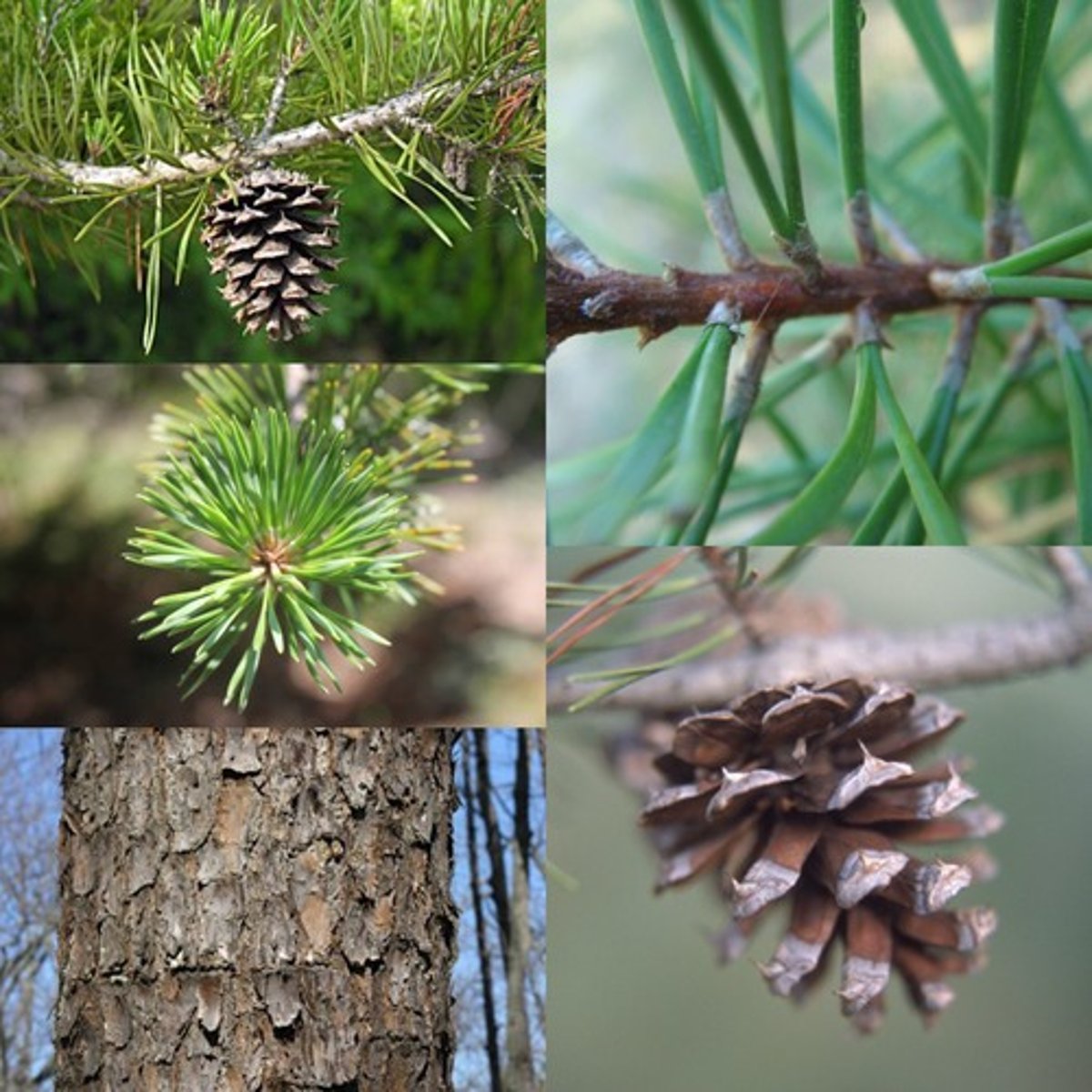
eastern hemlock (Tsuga canadensis)
short flat needles, drooping branches
bark may be flaky when young, then plated ridges
small cones 3/4 inch long
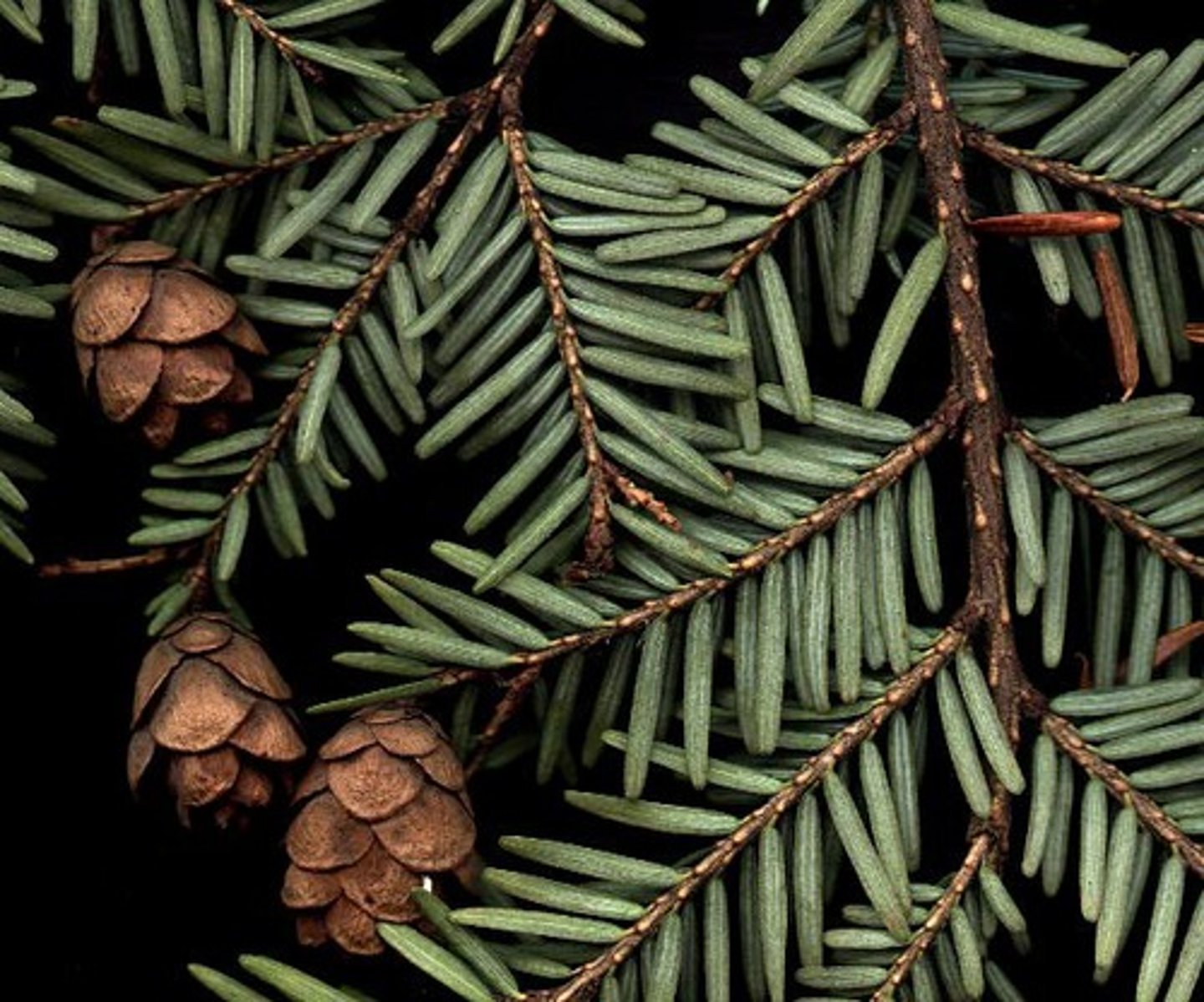
eastern red cedar (Juniperus virginiana)
red-brown peeling bark
scale-like leaves
small blue-green cones
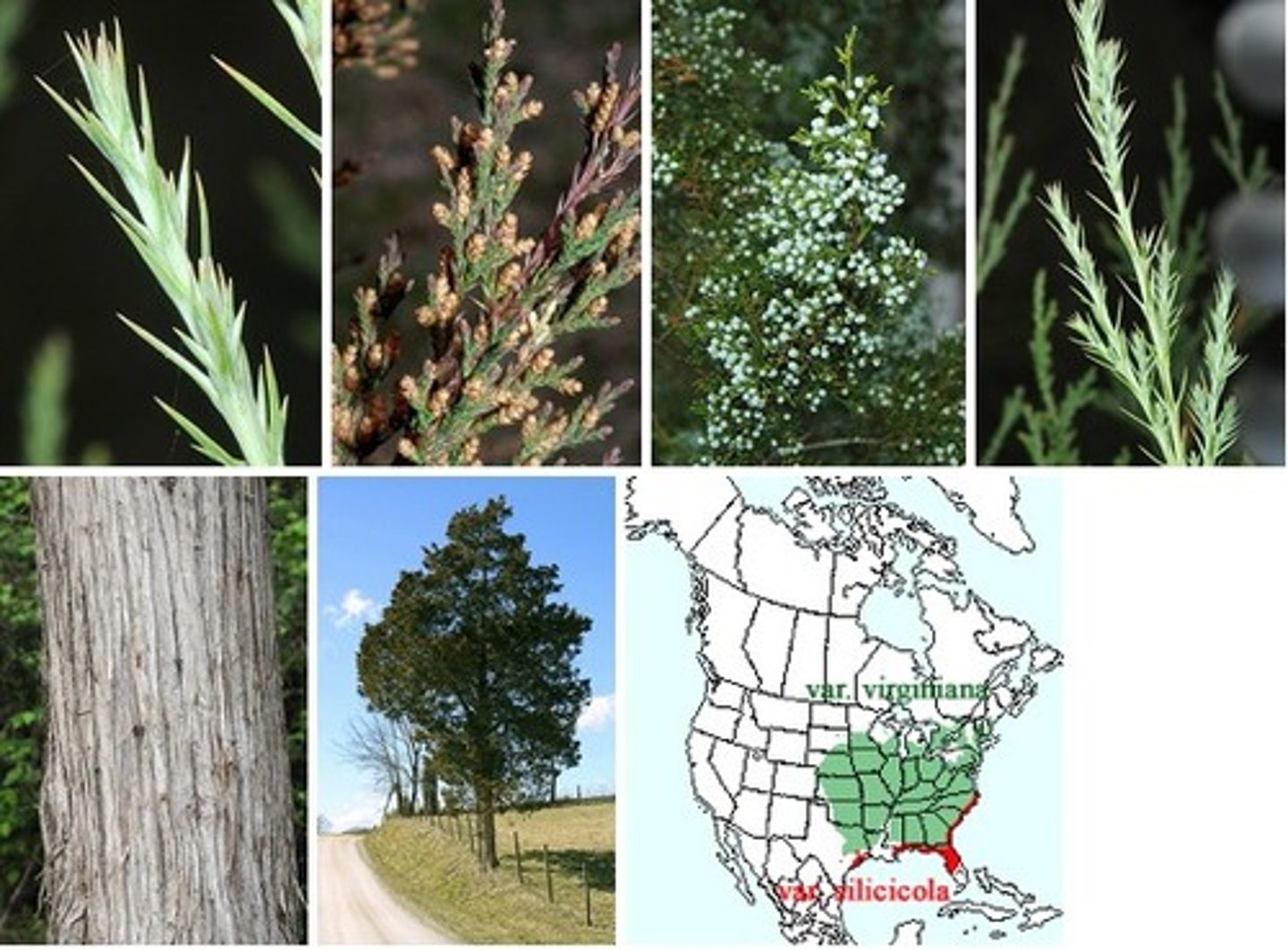
Atlantic white-cedar (Chamaecyparis thyoides)
small woody cones, scale-like leaves
peely bark with parallel furrows
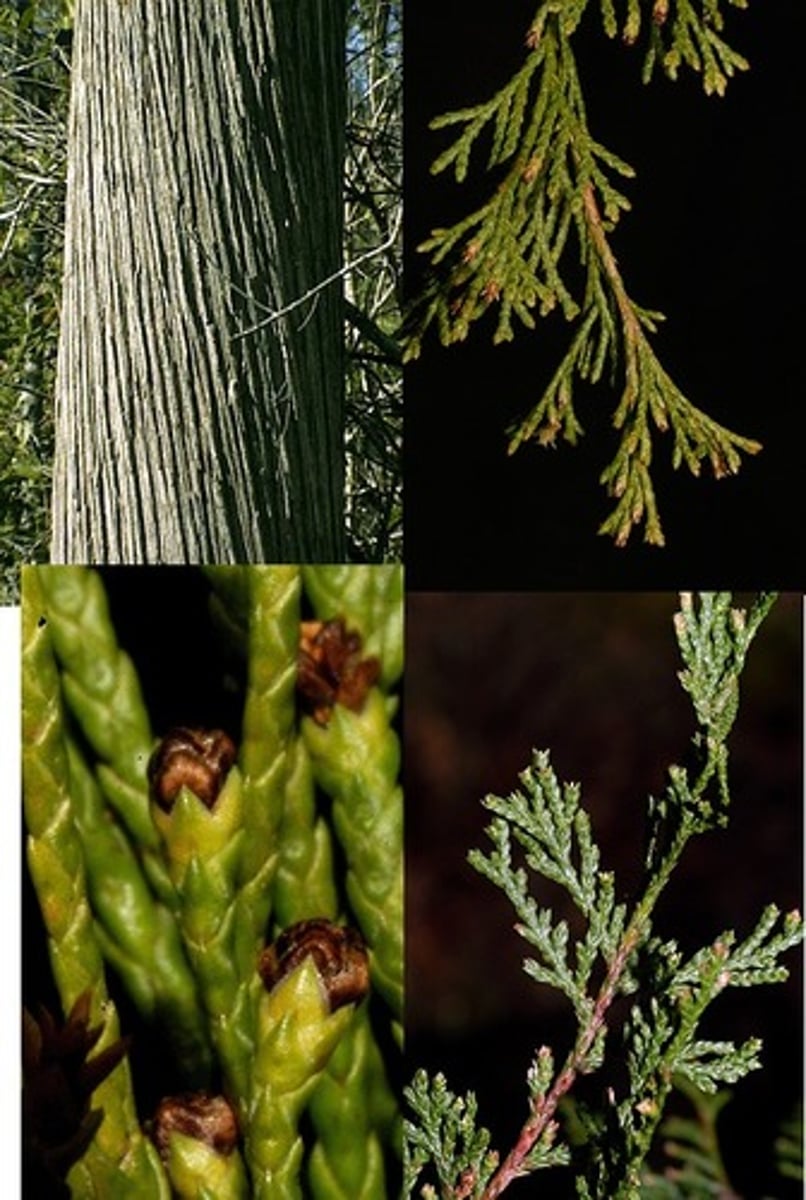
Bald cypress (Taxodium distichum)
buttressed trunk and knees
soft needle leaves
reddish fibrous peeling bark
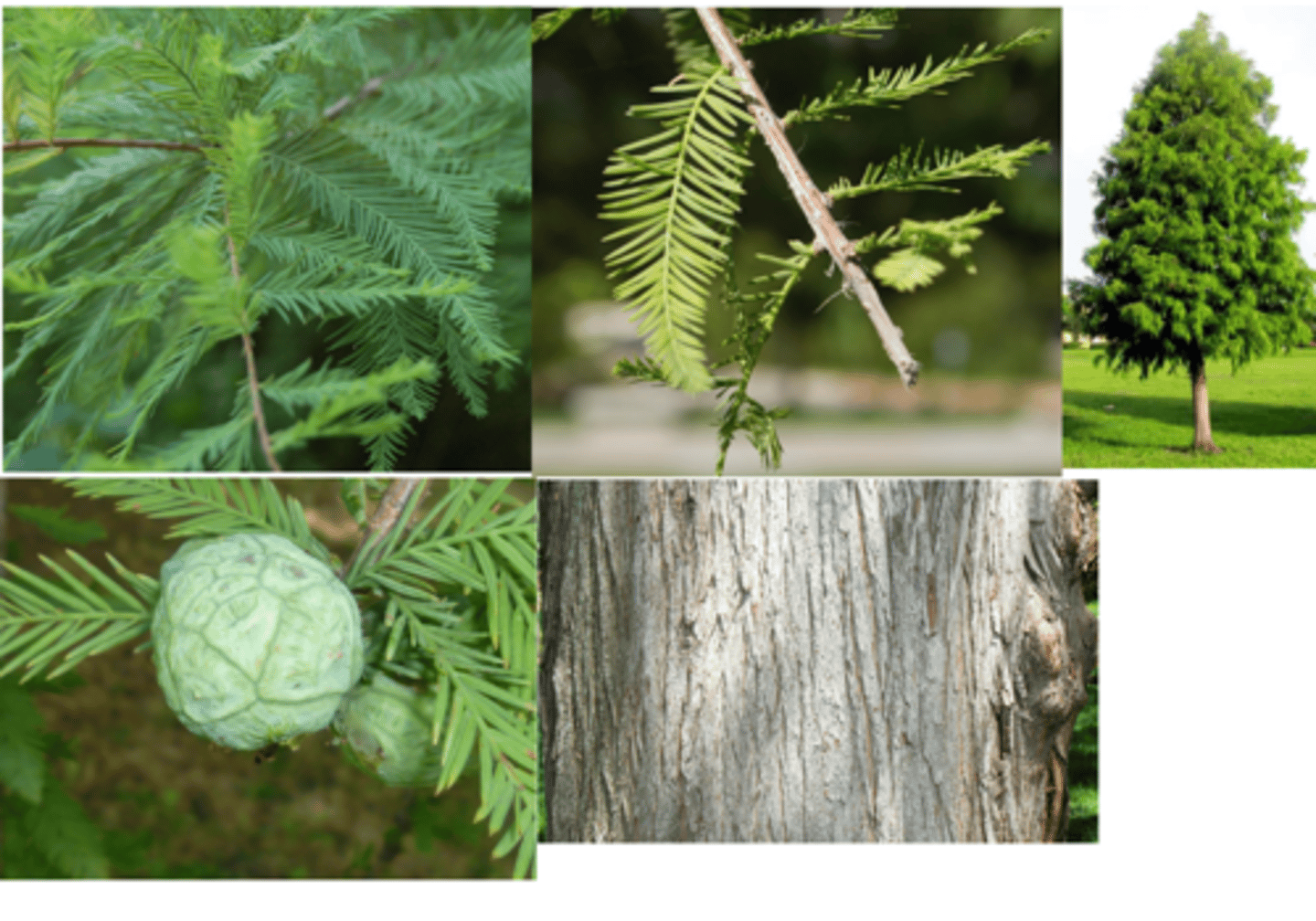
River birch (Betula nigra)
shaggy, peeling, red brown bark
winged seeds
simple, alternate, doubly serrate leaves 2-4 inches long, triangular
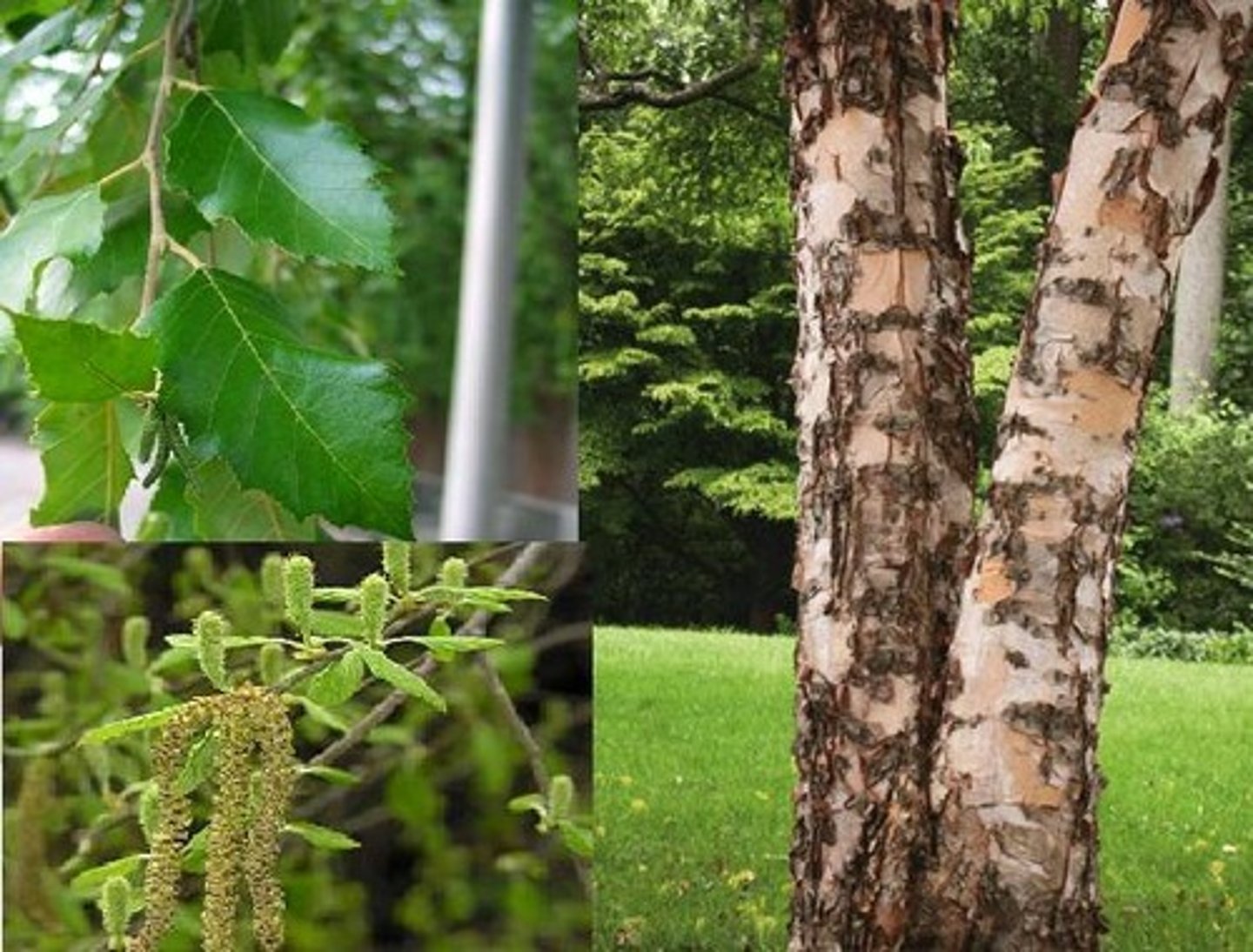
water oak (Quercus nigra)
paddle shaped leaves
furrowed brown bark
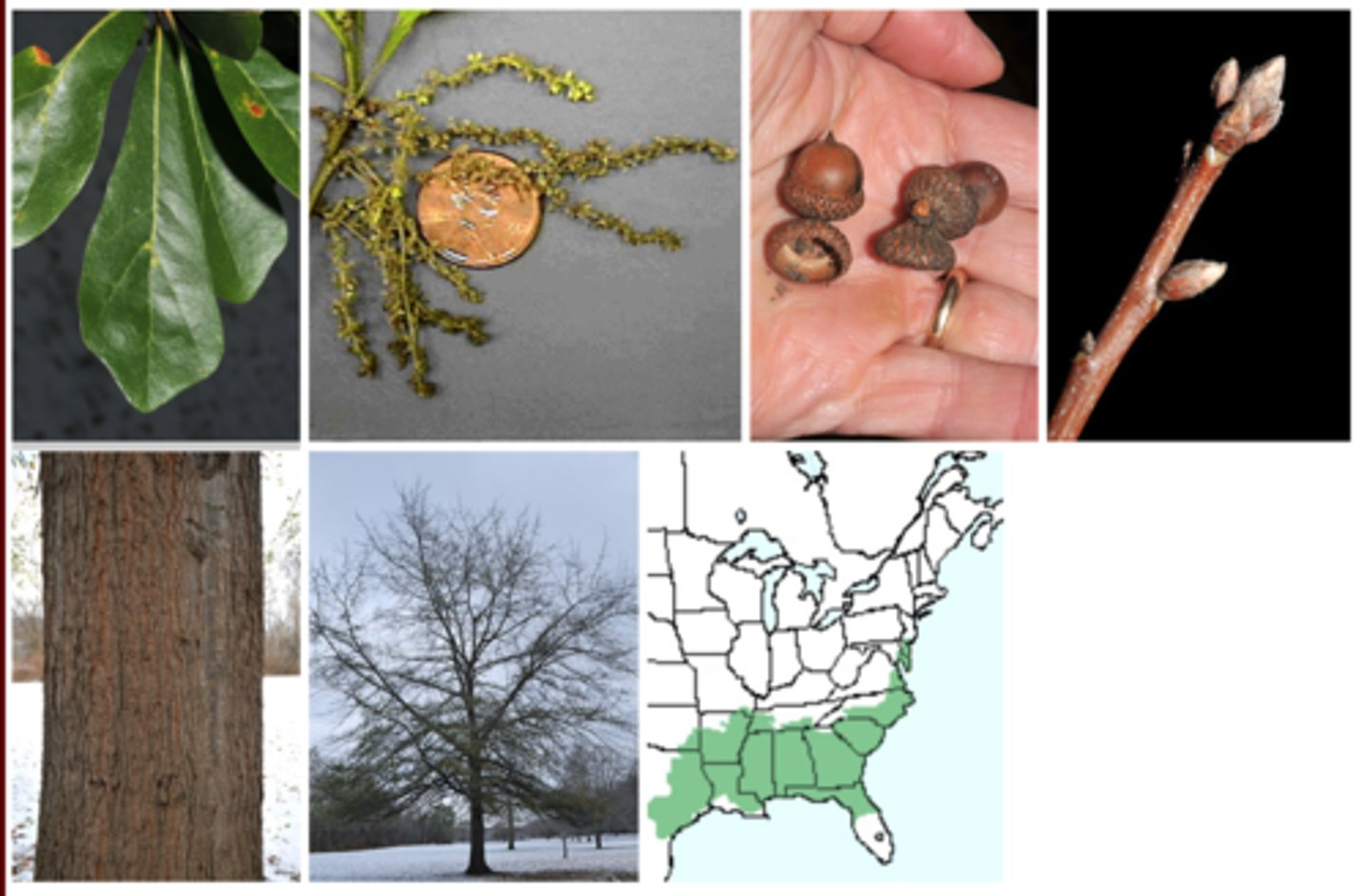
turkey oak (Quercus laevis)
leaves with 3-7 skinny lobes resembling turkey foot, egg shaped acorns 1 inch long
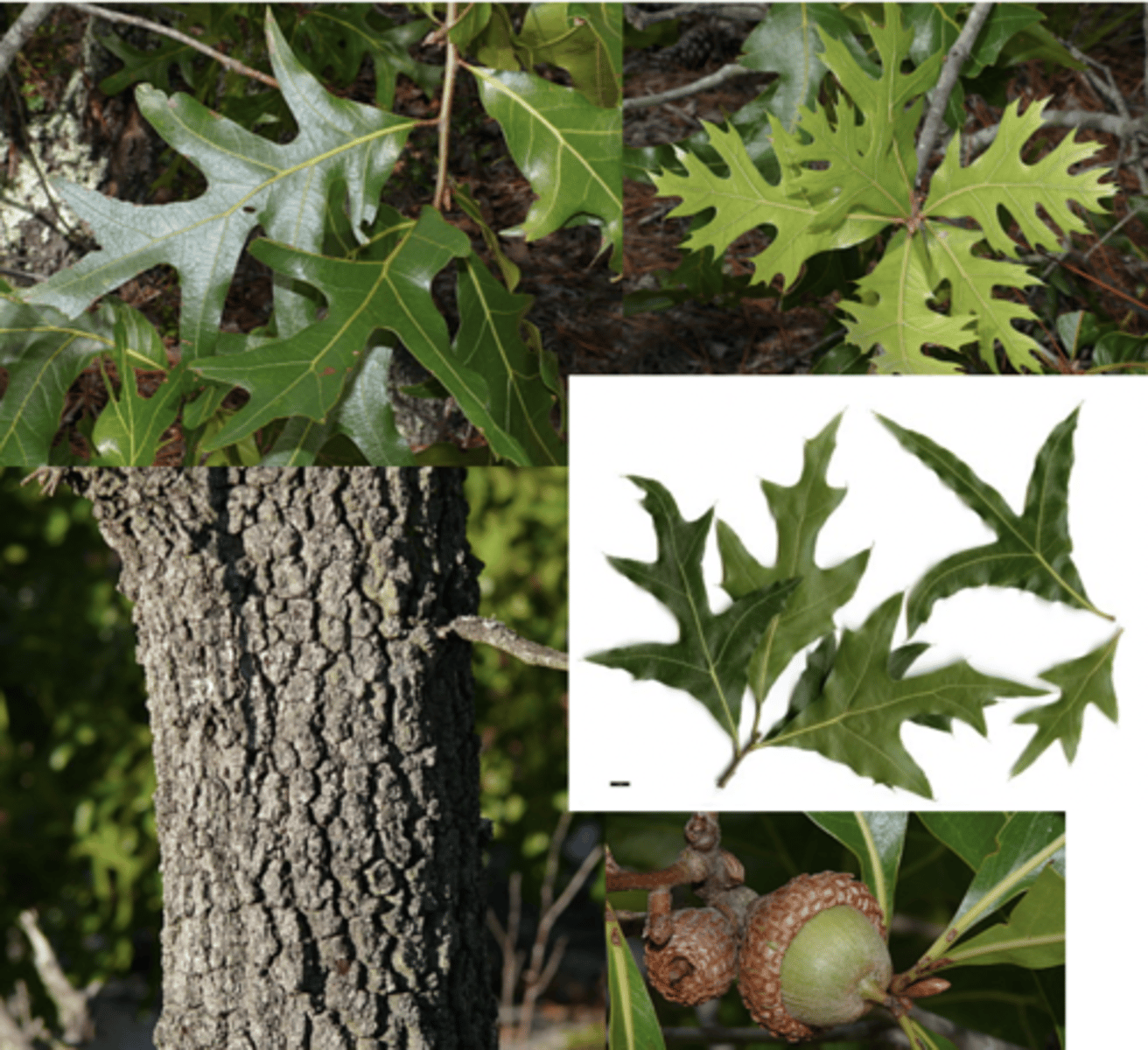
laurel oak (Quercus laurifolia)
2-4 inch oval leaves
partially evergreen
moderately furrowed bark
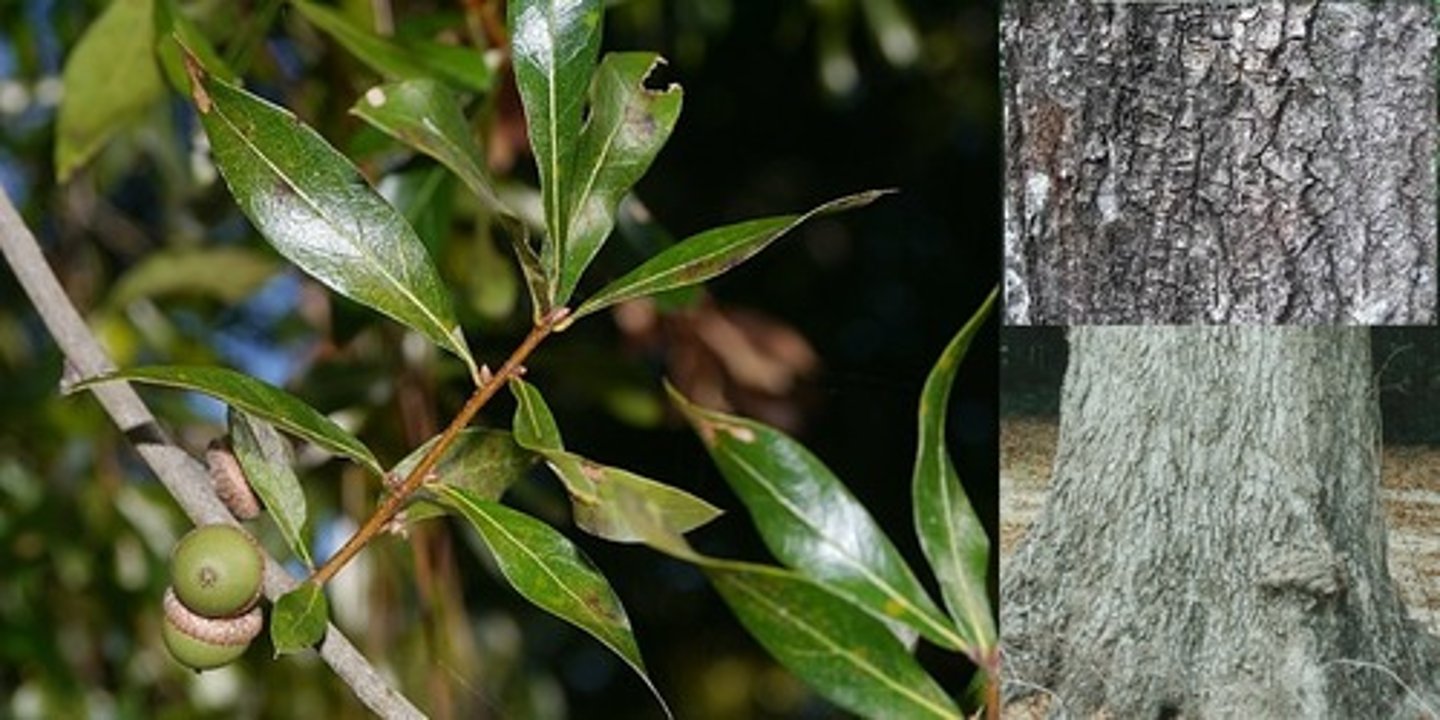
Live oak (Quercus virginiana)
stiff leathery glossy dark green leaves with rolled edges
Wide imposing silhouette
nearly evergreen
dark furrowed bark
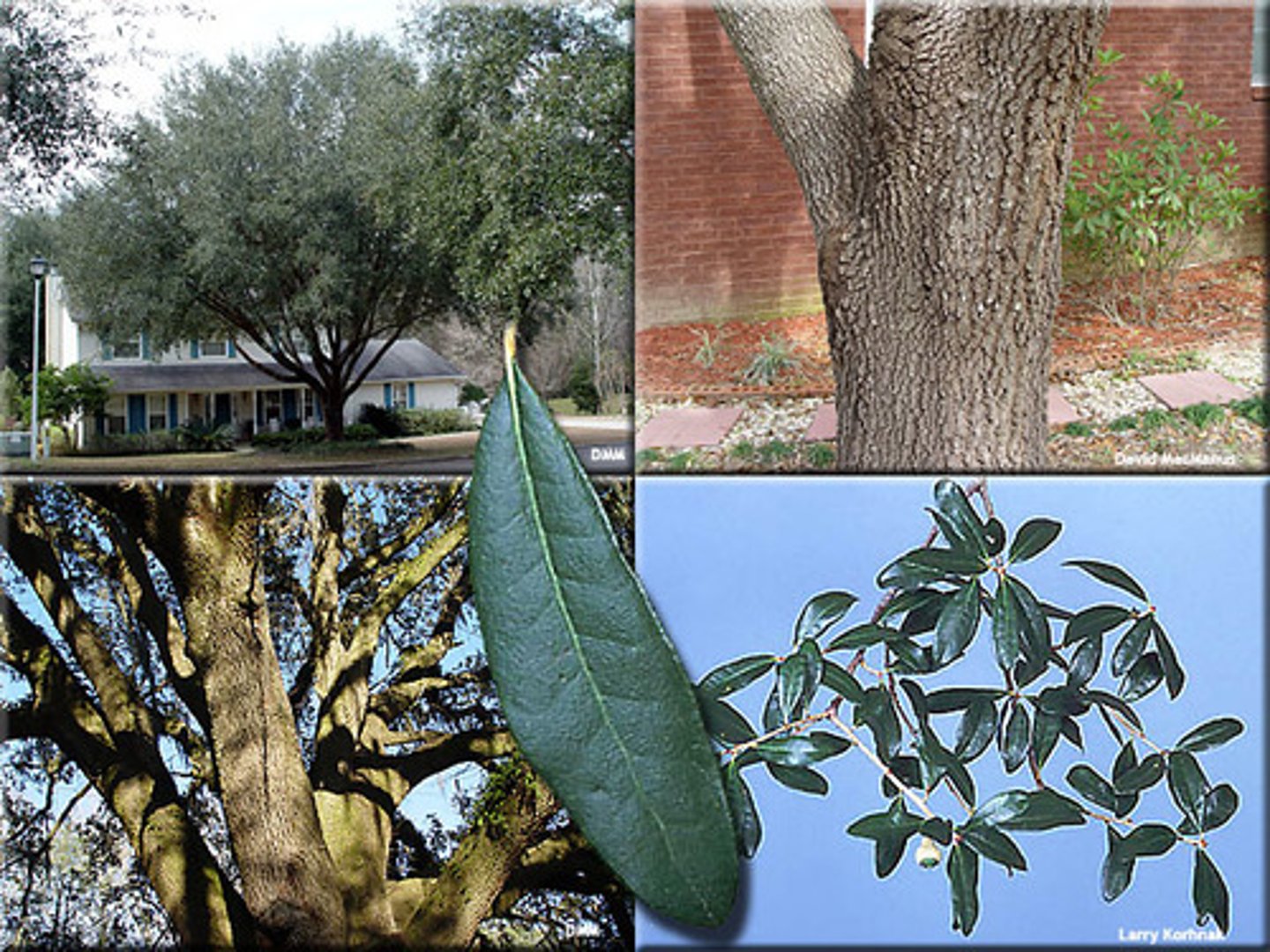
American elm (Ulmus americana)
leaves toothed, ovate, alternate, with asymmetrical base
bark dark gray with flat, braided ridges
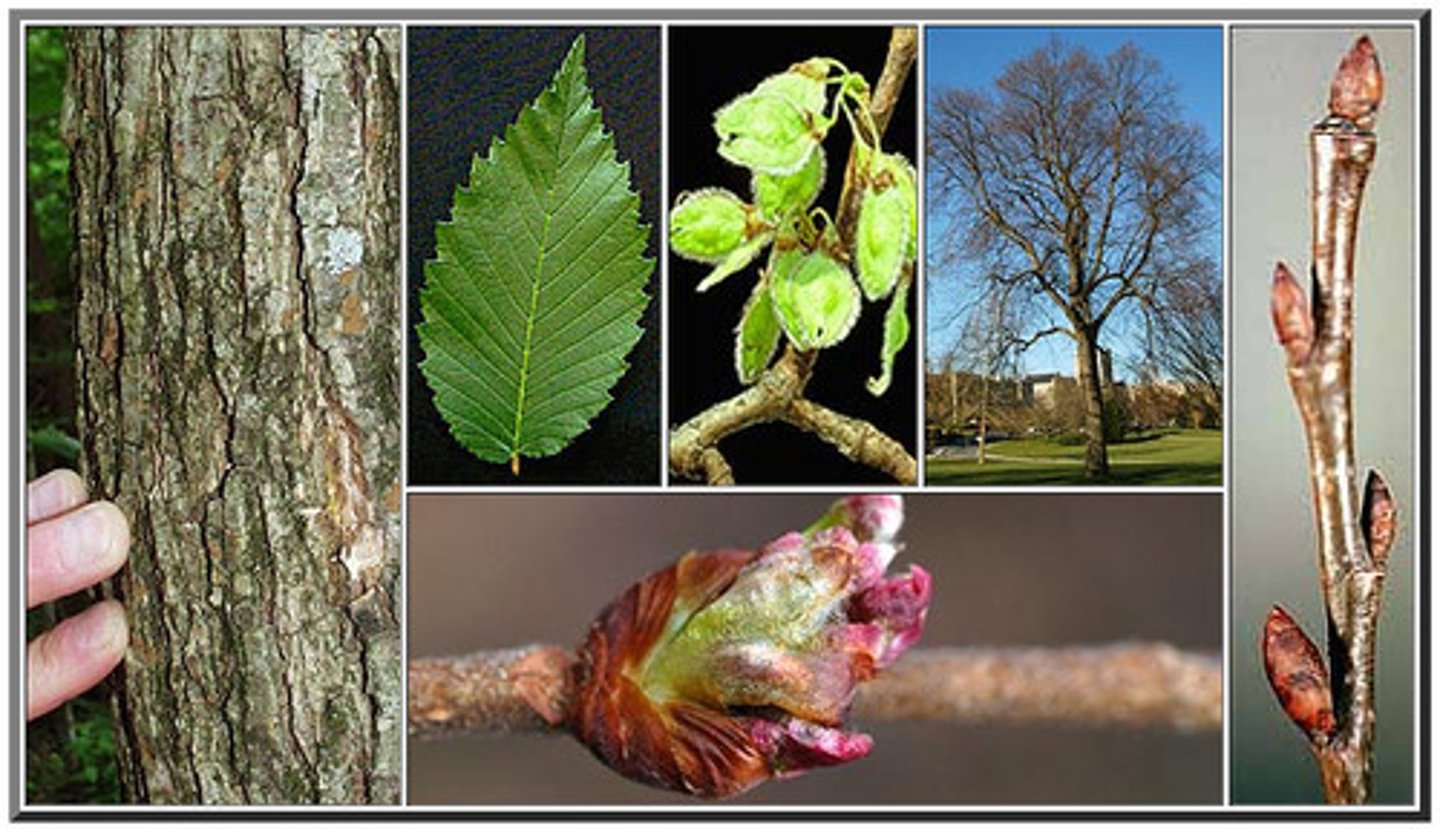
American sycamore (Platanus occidentalis)
white to tan peeling bark
wide short leaves with 3 shallowly indented lobes
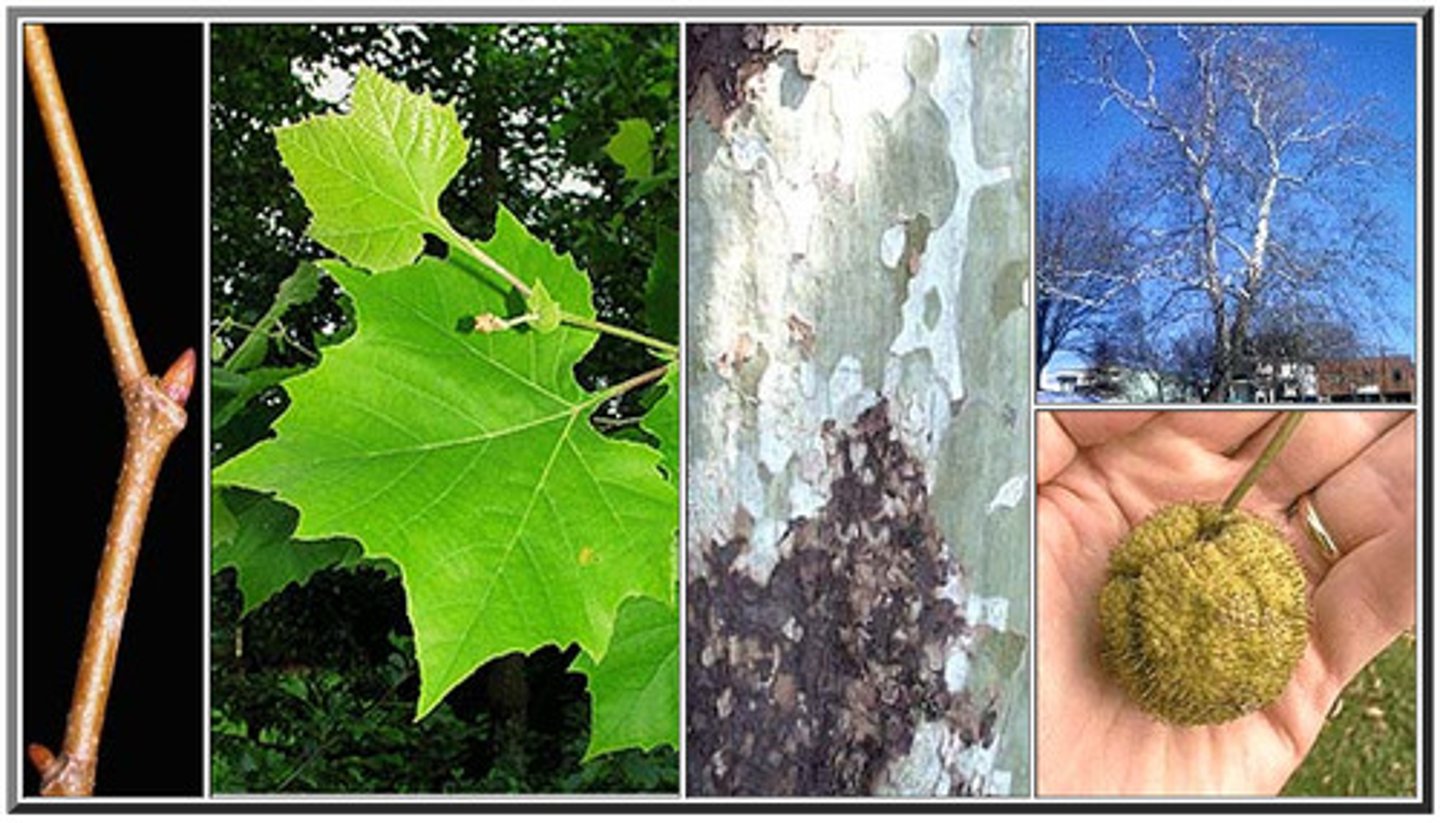
Silver maple (Acer saccharinum)
deeply lobed leaves with silvery white underside
smooth to flaky to scaly gray bark
paired samaras
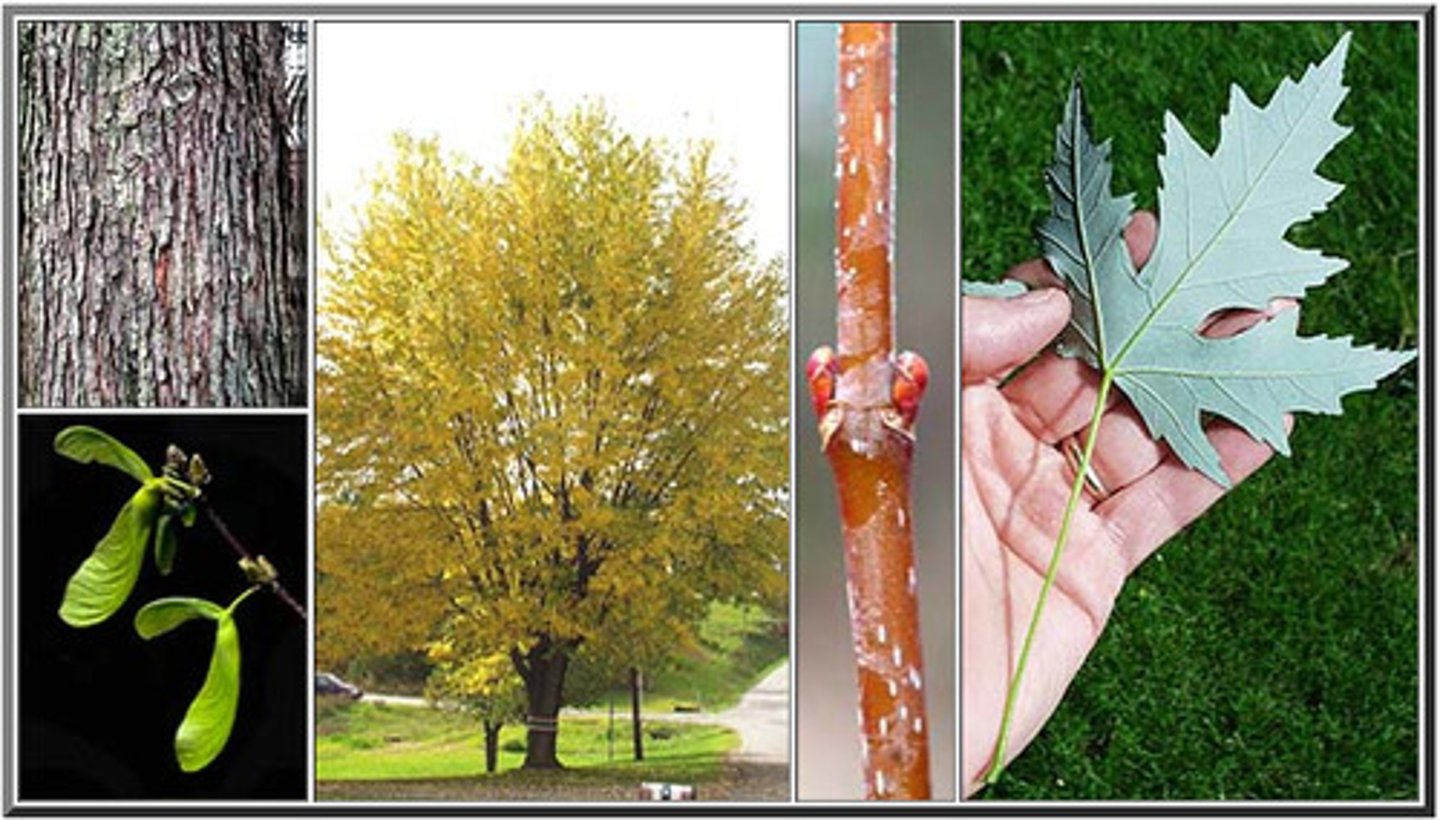
general maple
palmate leaves
samaras
general ash
opposite branching
pinnately compound leaves 5-9 leaflets
diamond shaped ridges on bark
general oak
lobed leaves, white oaks with smooth lobes and red oaks with pointed tips
acorns
shallow grooved bark
general birch
smooth peely bark
leaves with serrate edges
drooping branches
general hickory
alternate compound leaves, terminal leaflet being the largest
nuts enclosed in husks
general beech
smooth gray bark
alternate branching
leaves oval or elliptical with sharply toothed margins
general cedar
scale like leaves, peeling bark
general elm
oval or elliptical serrated leaves, samaras
rough furrowed bark